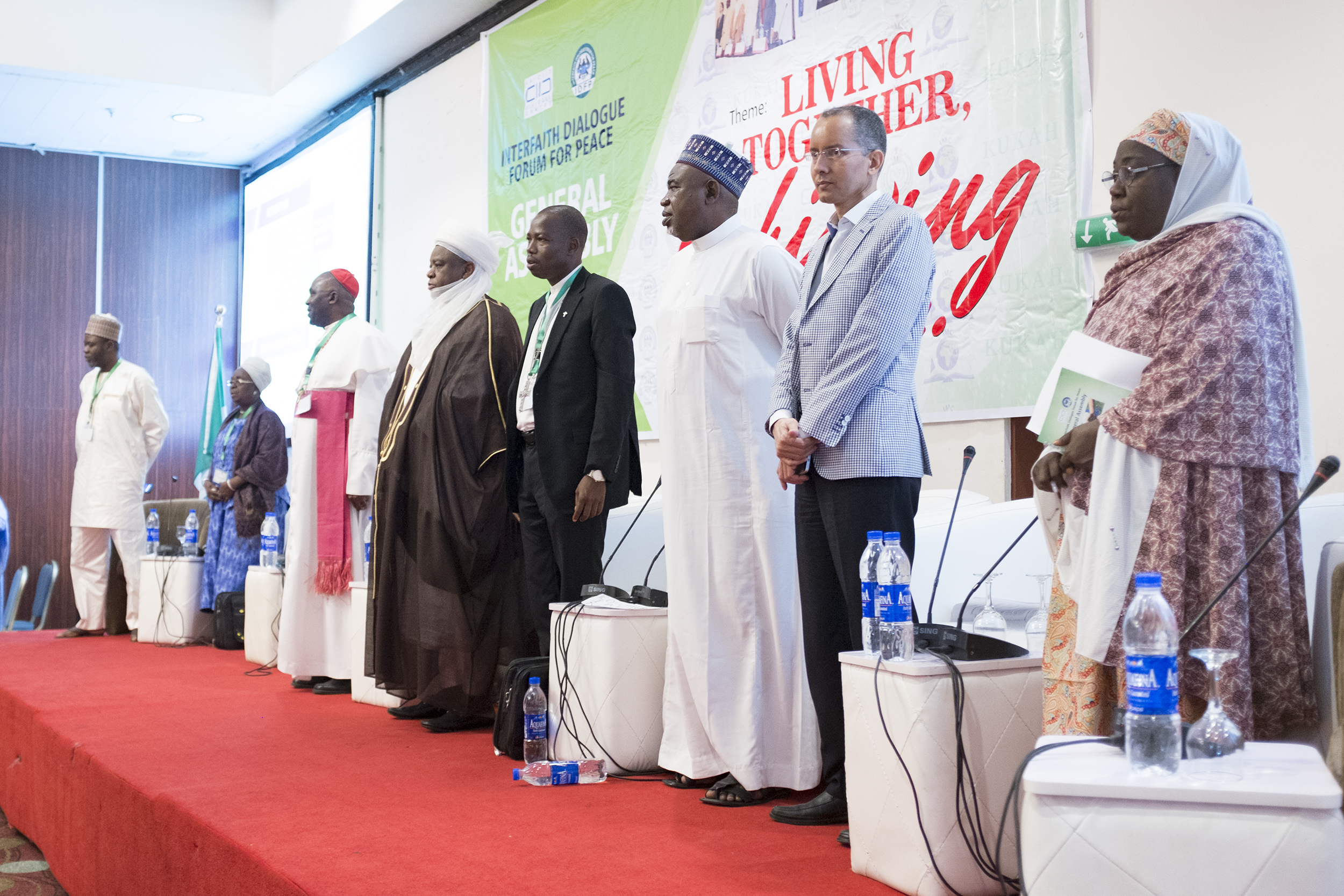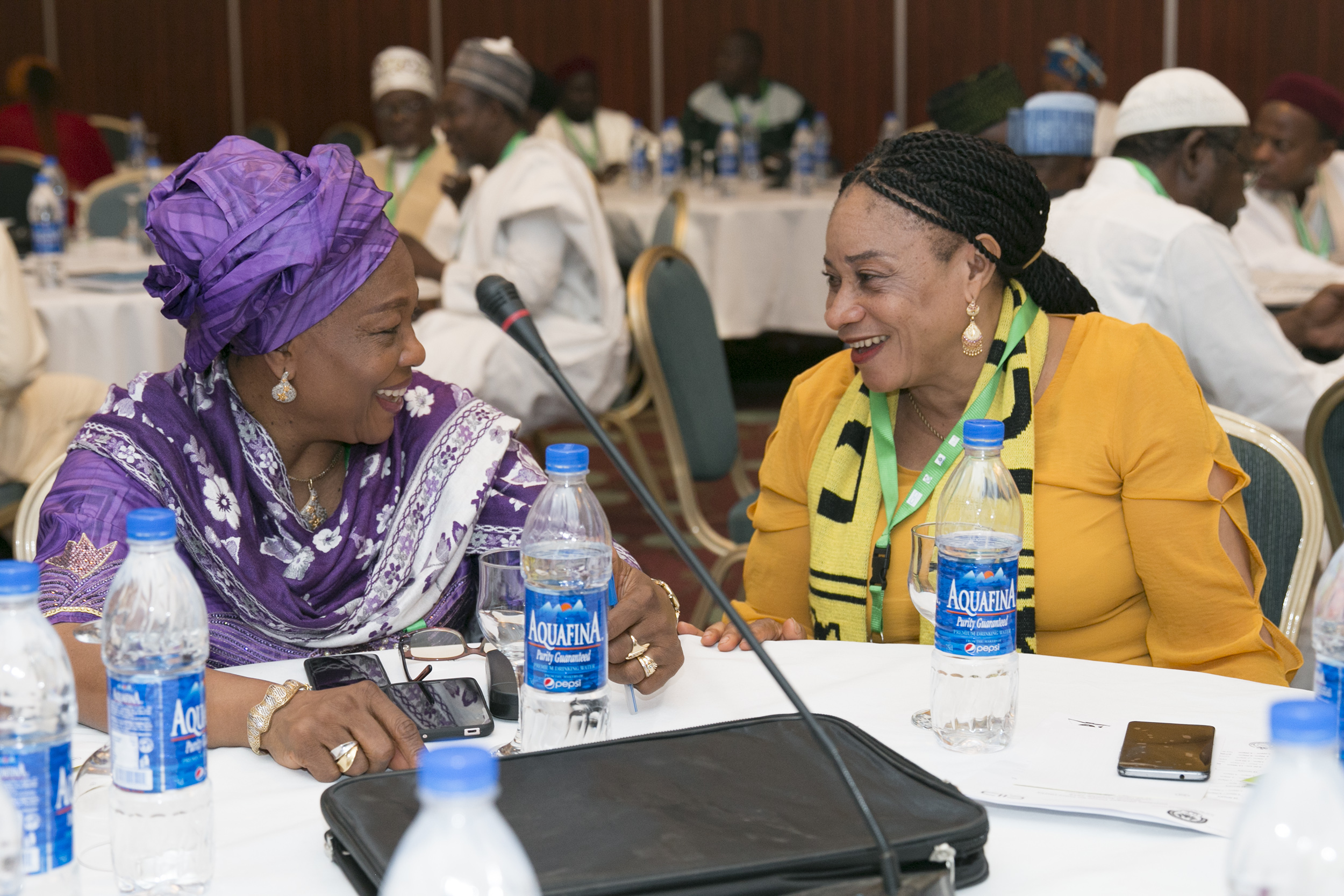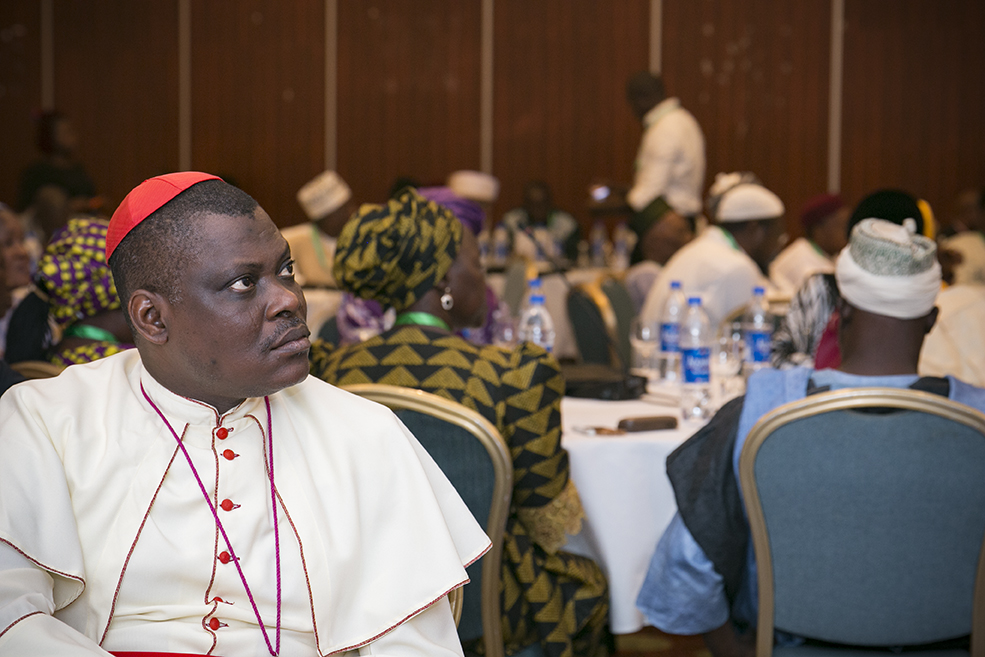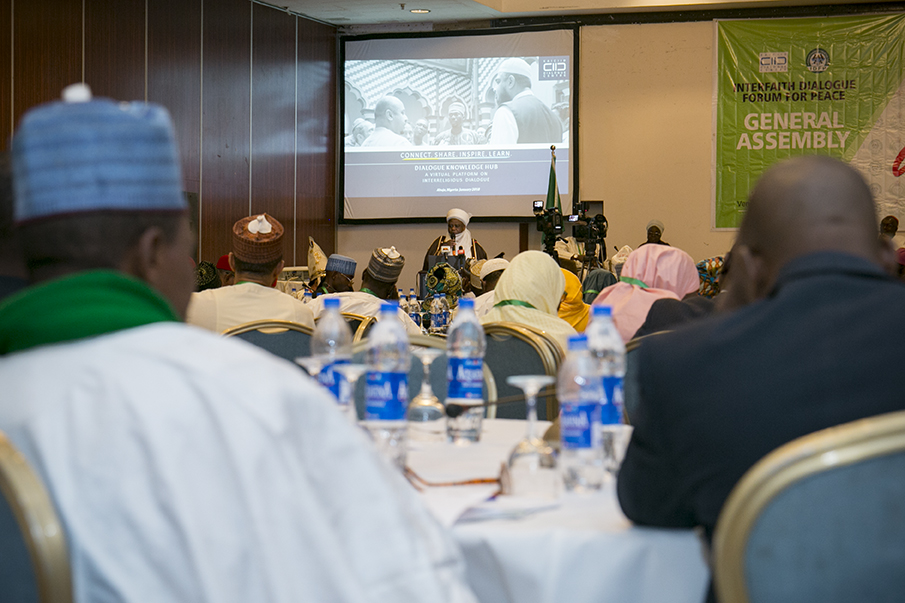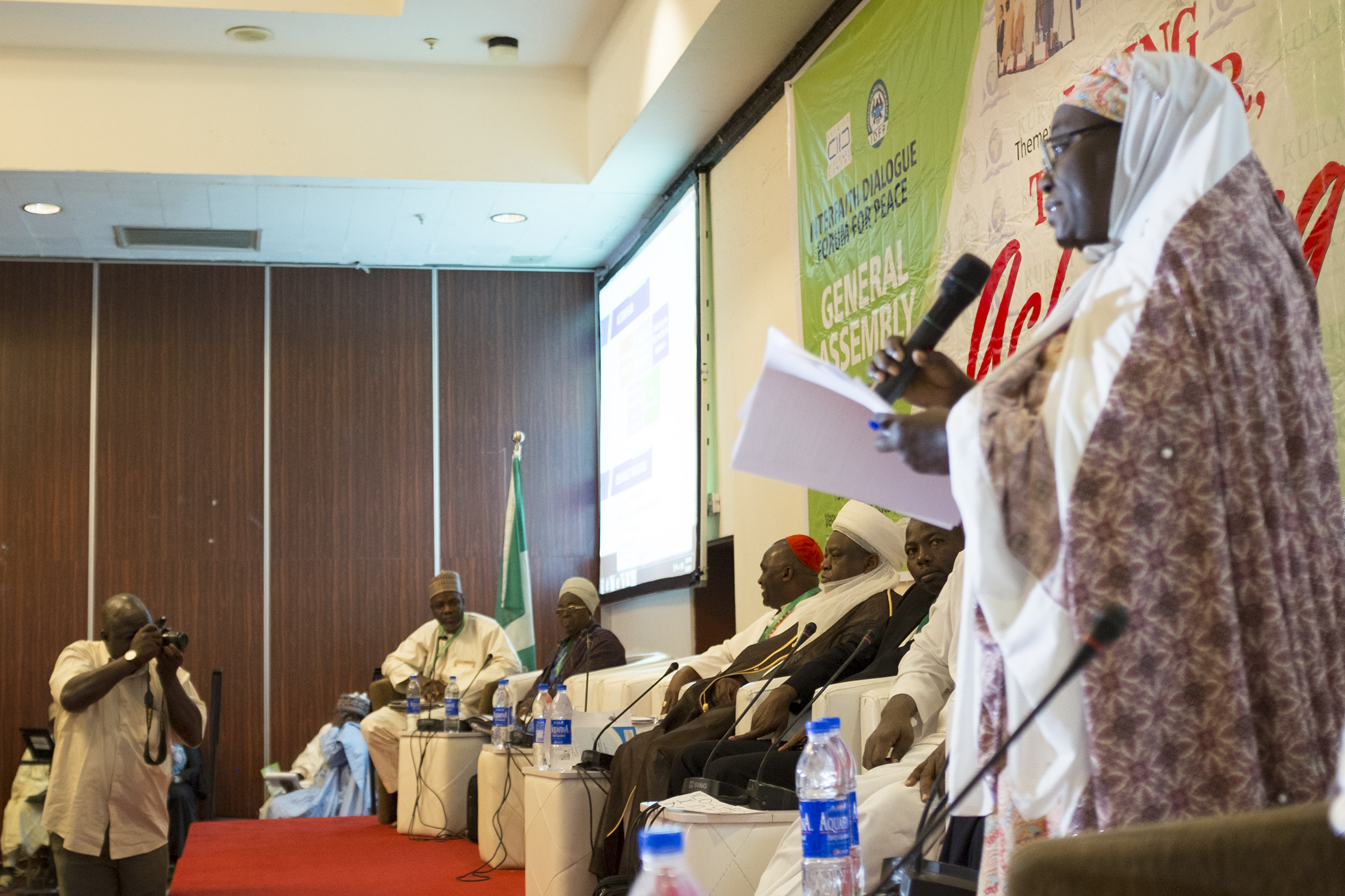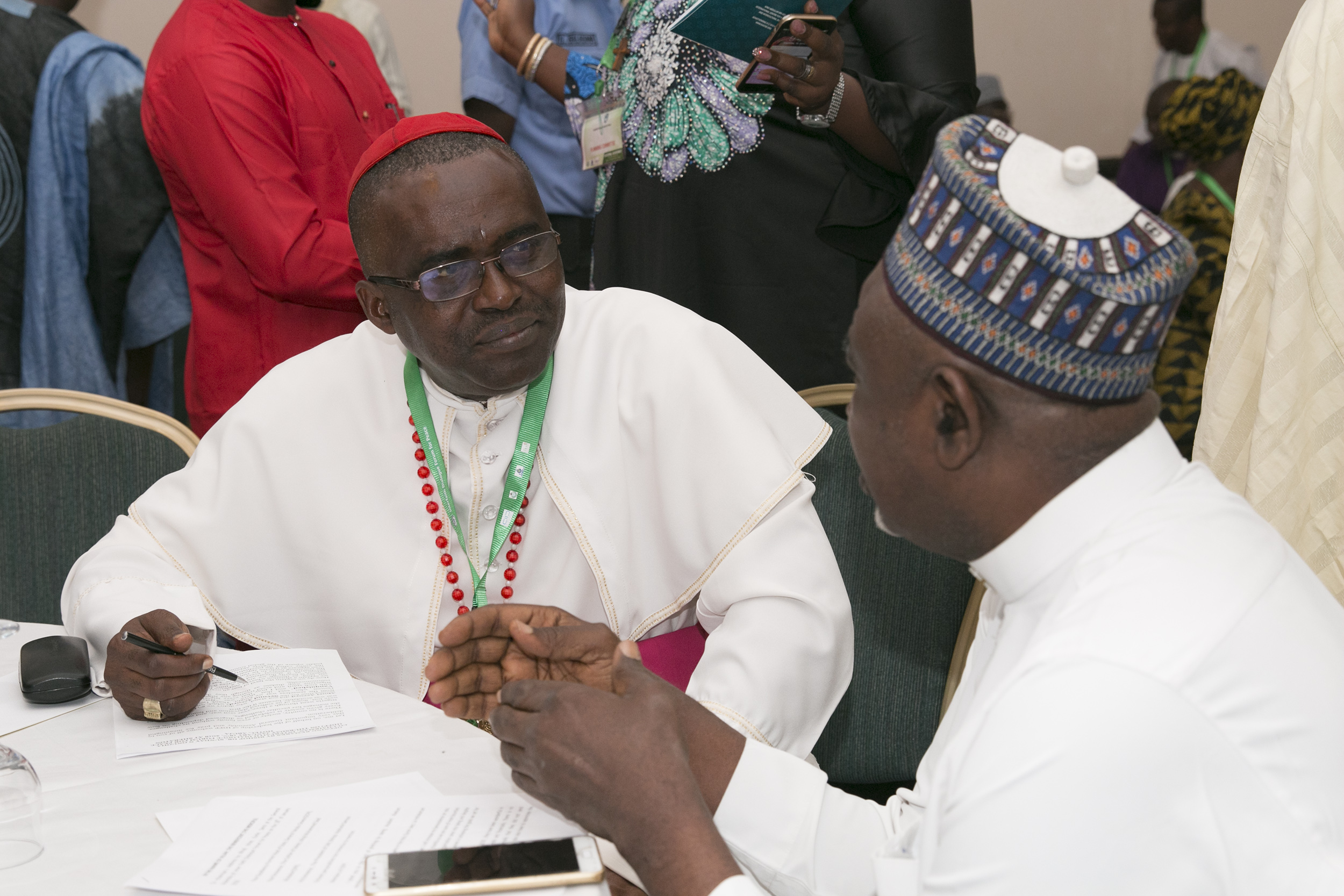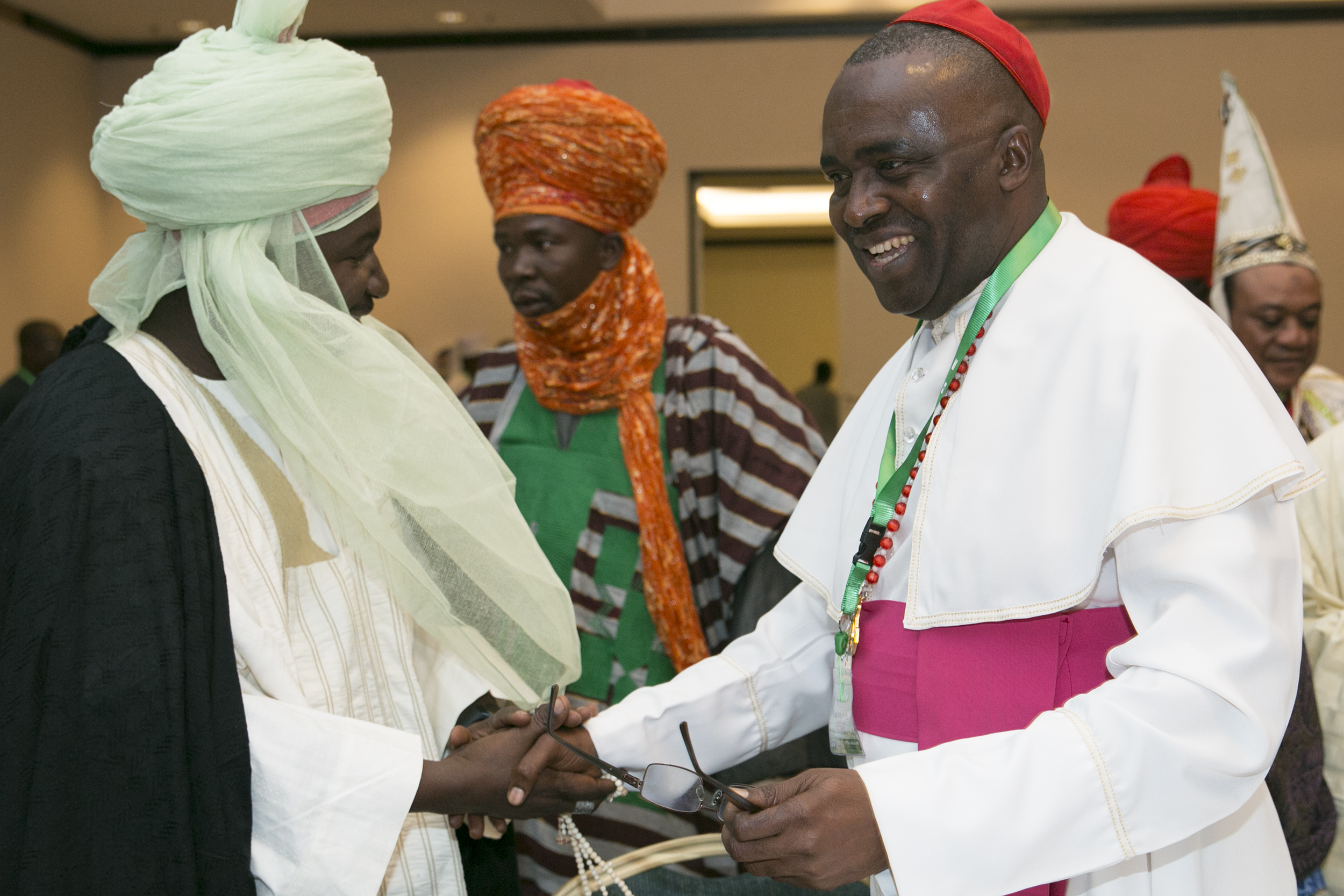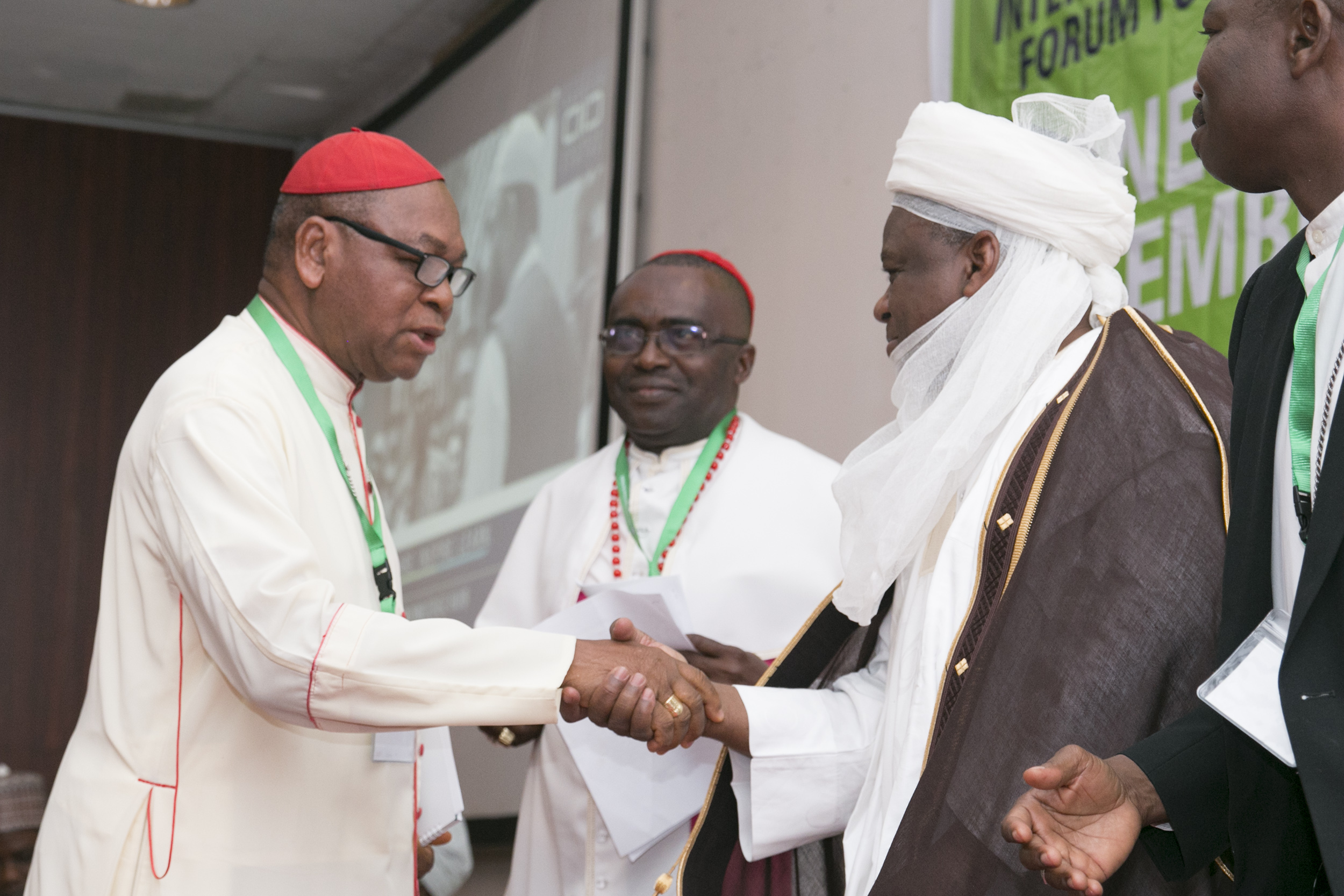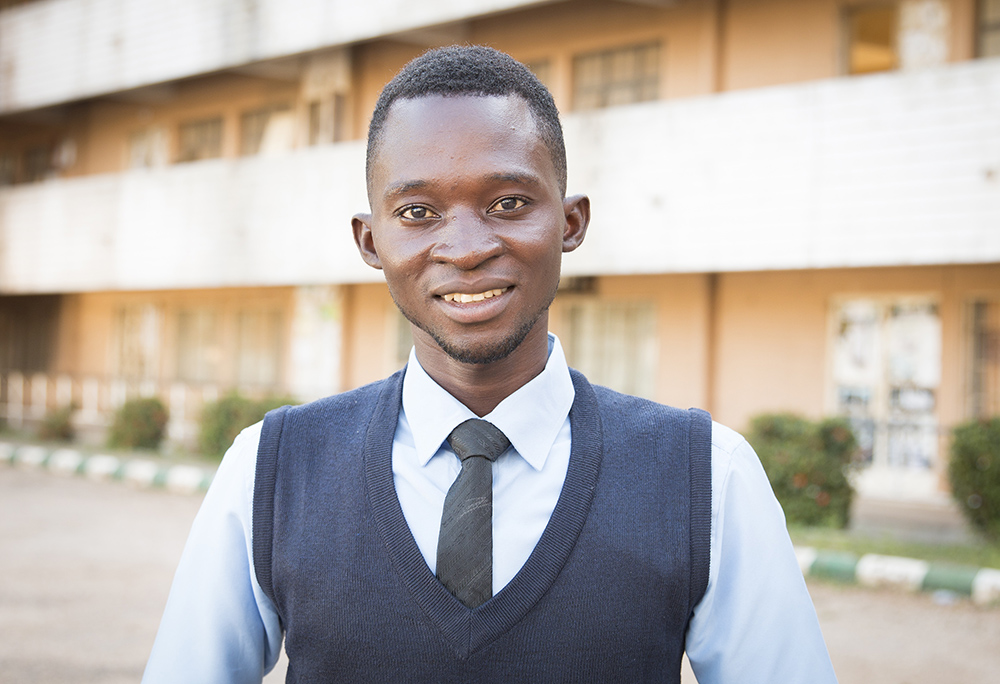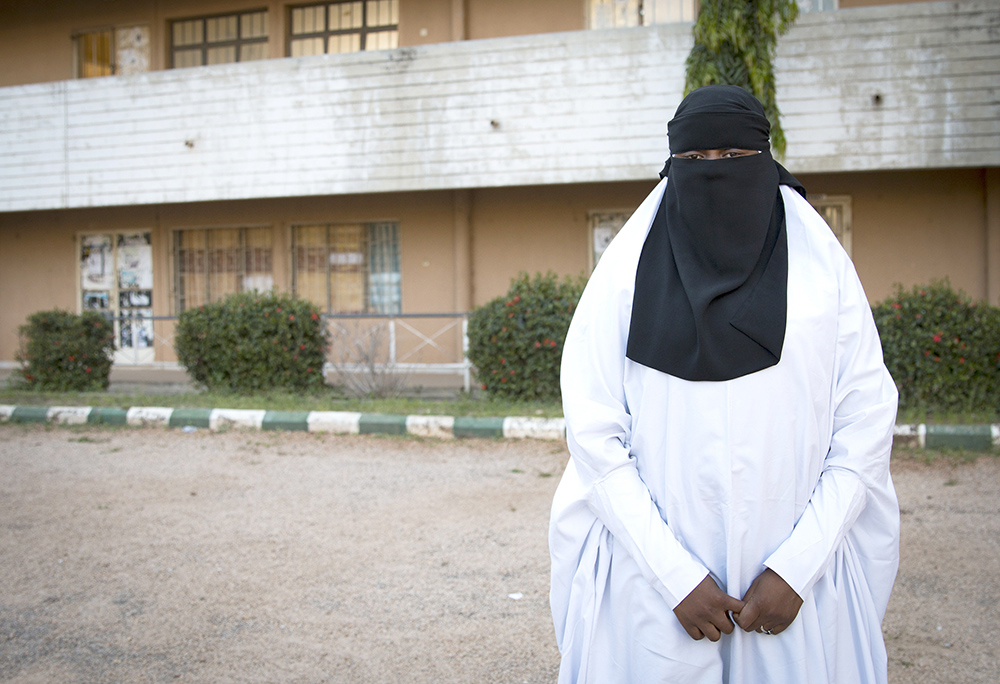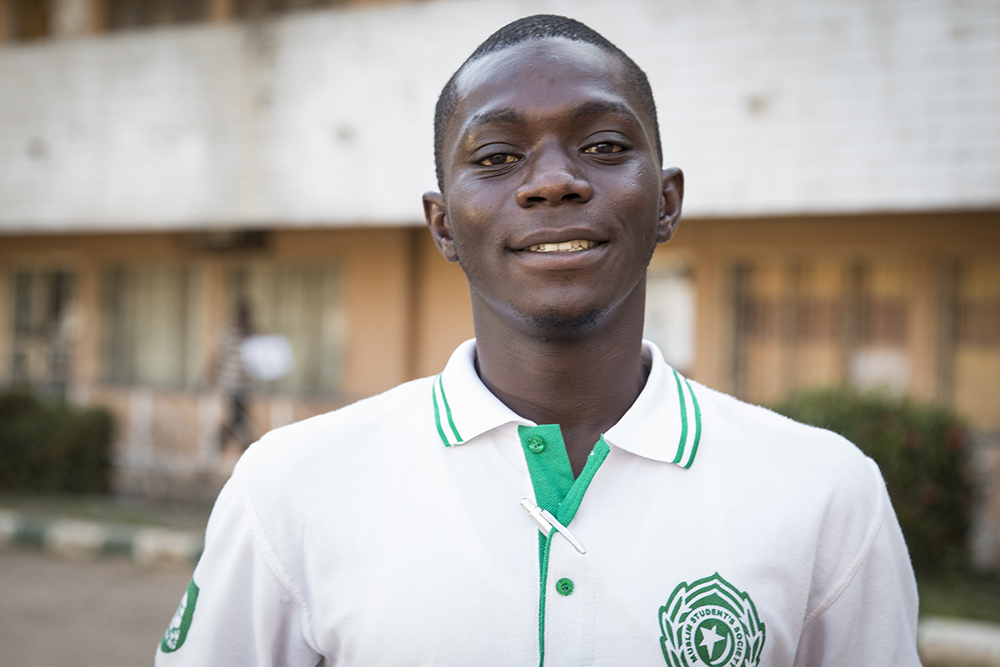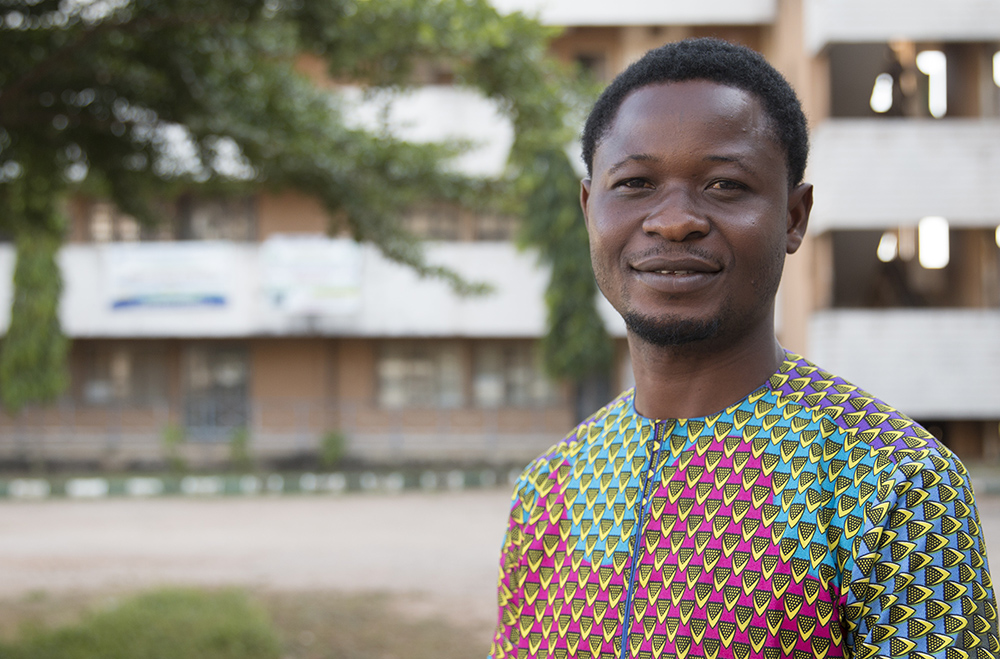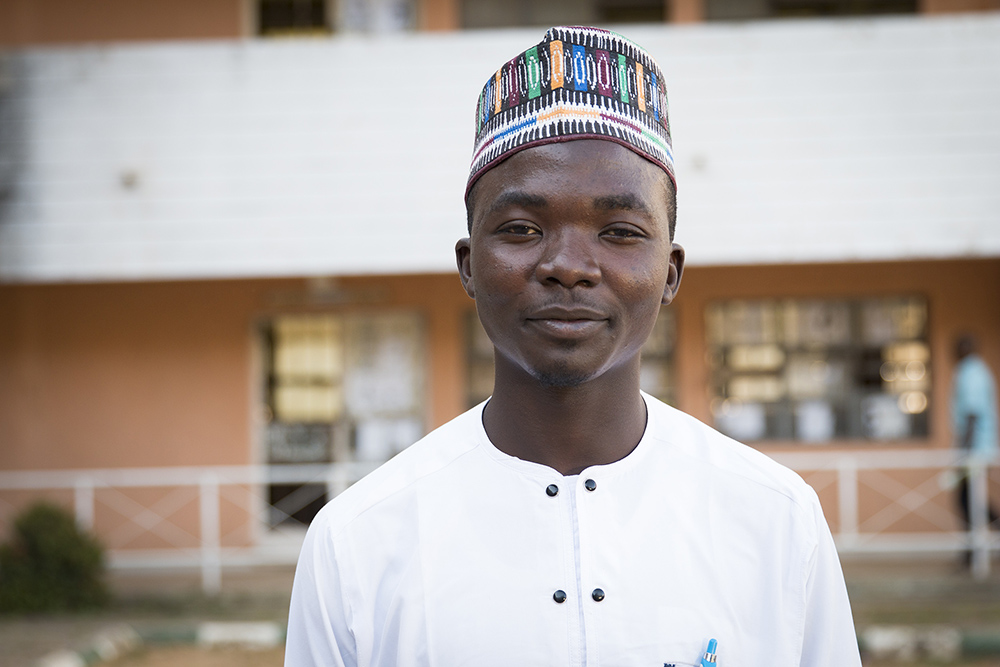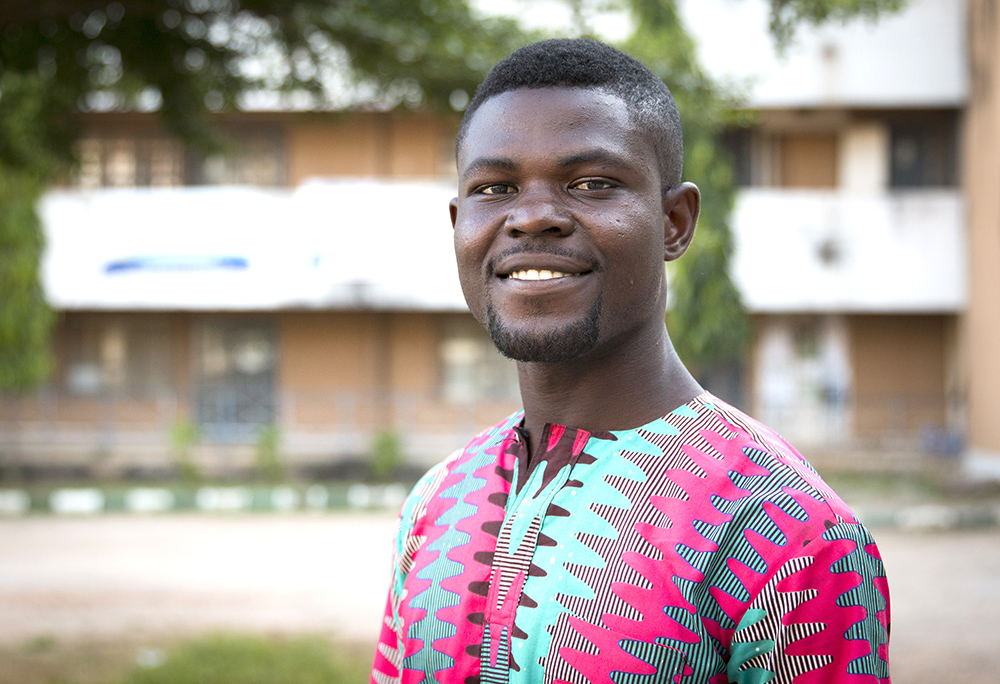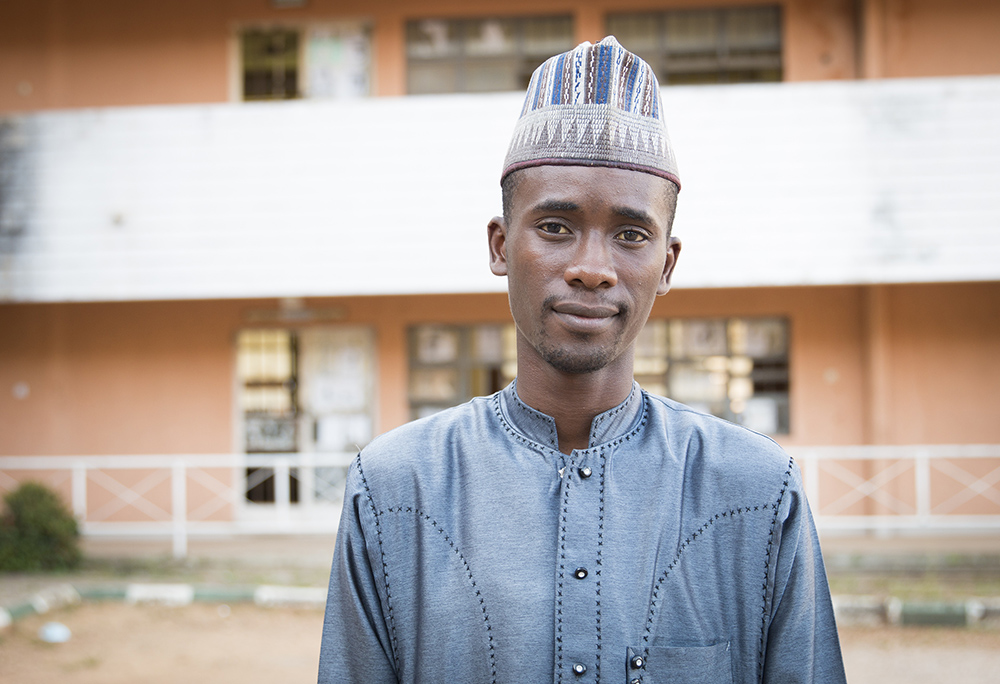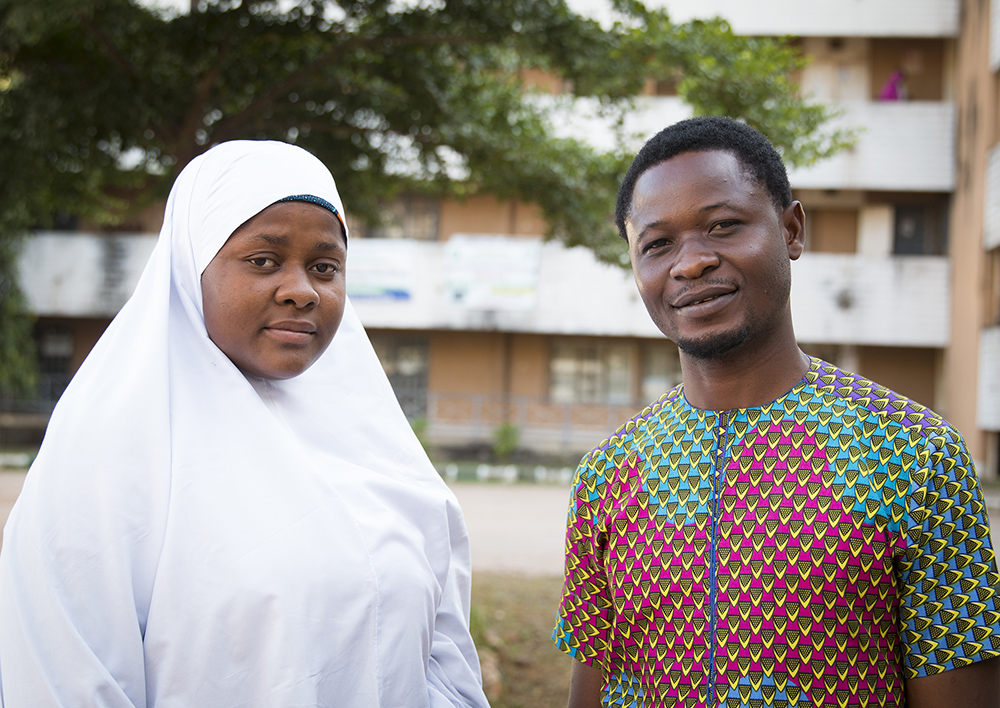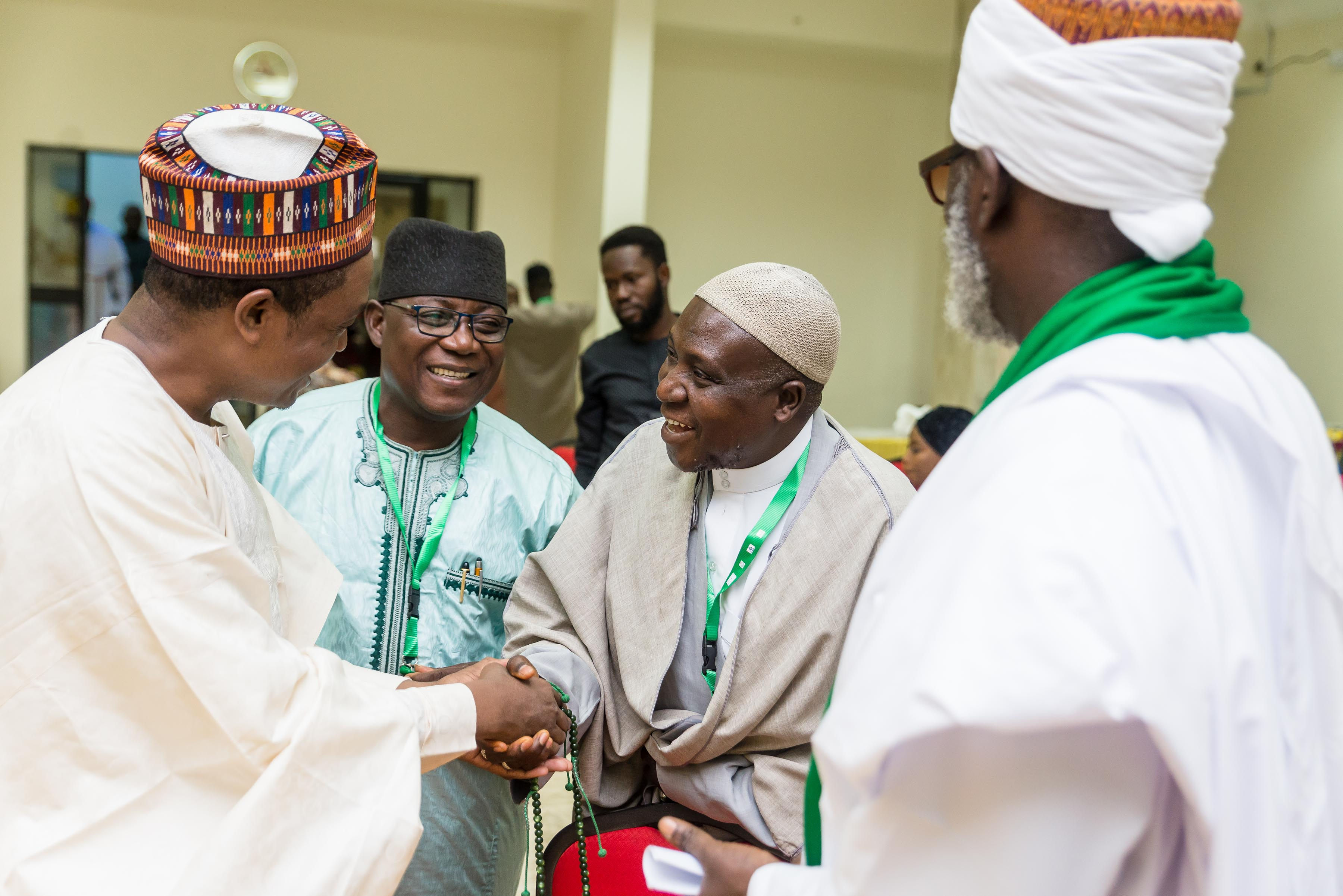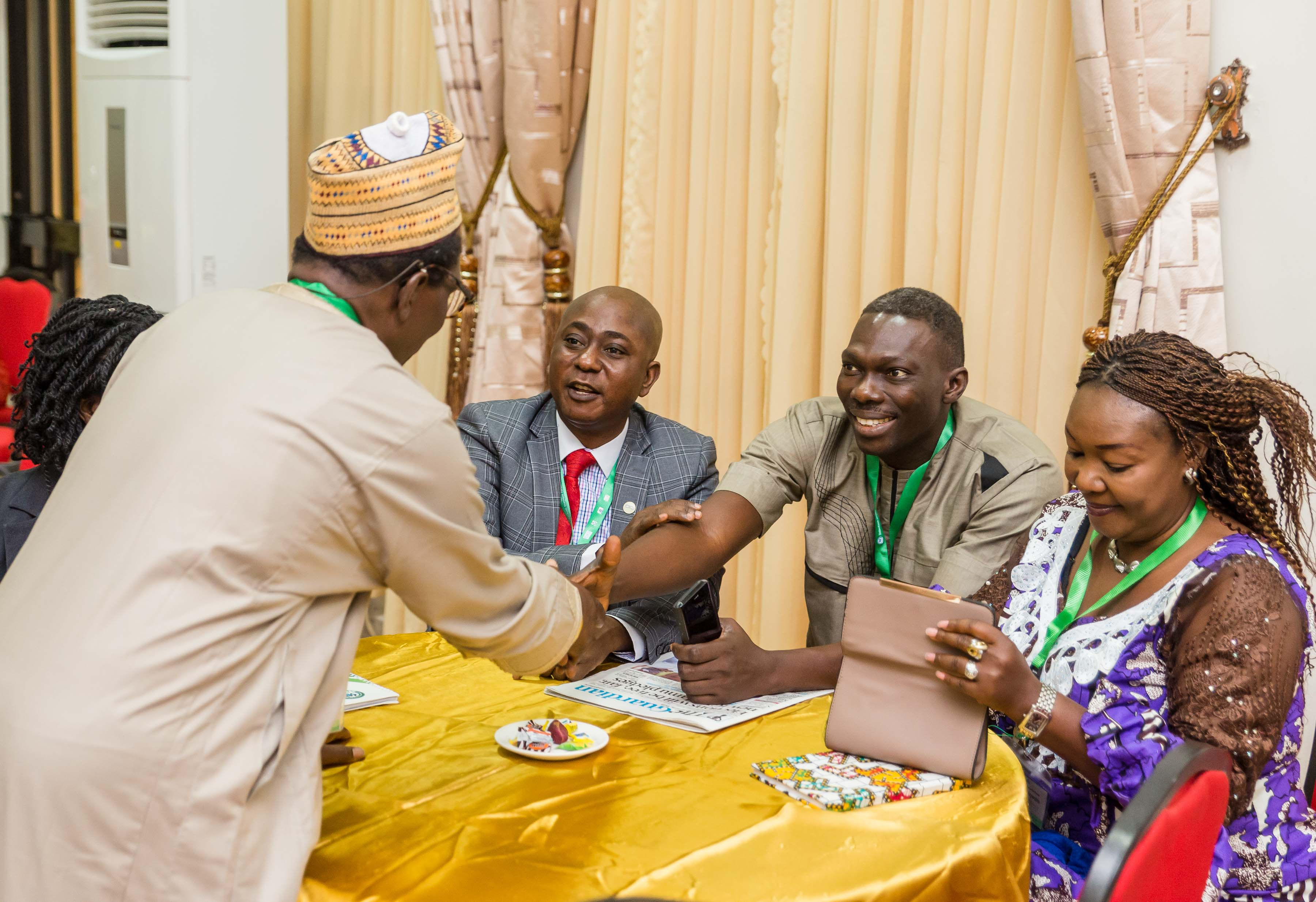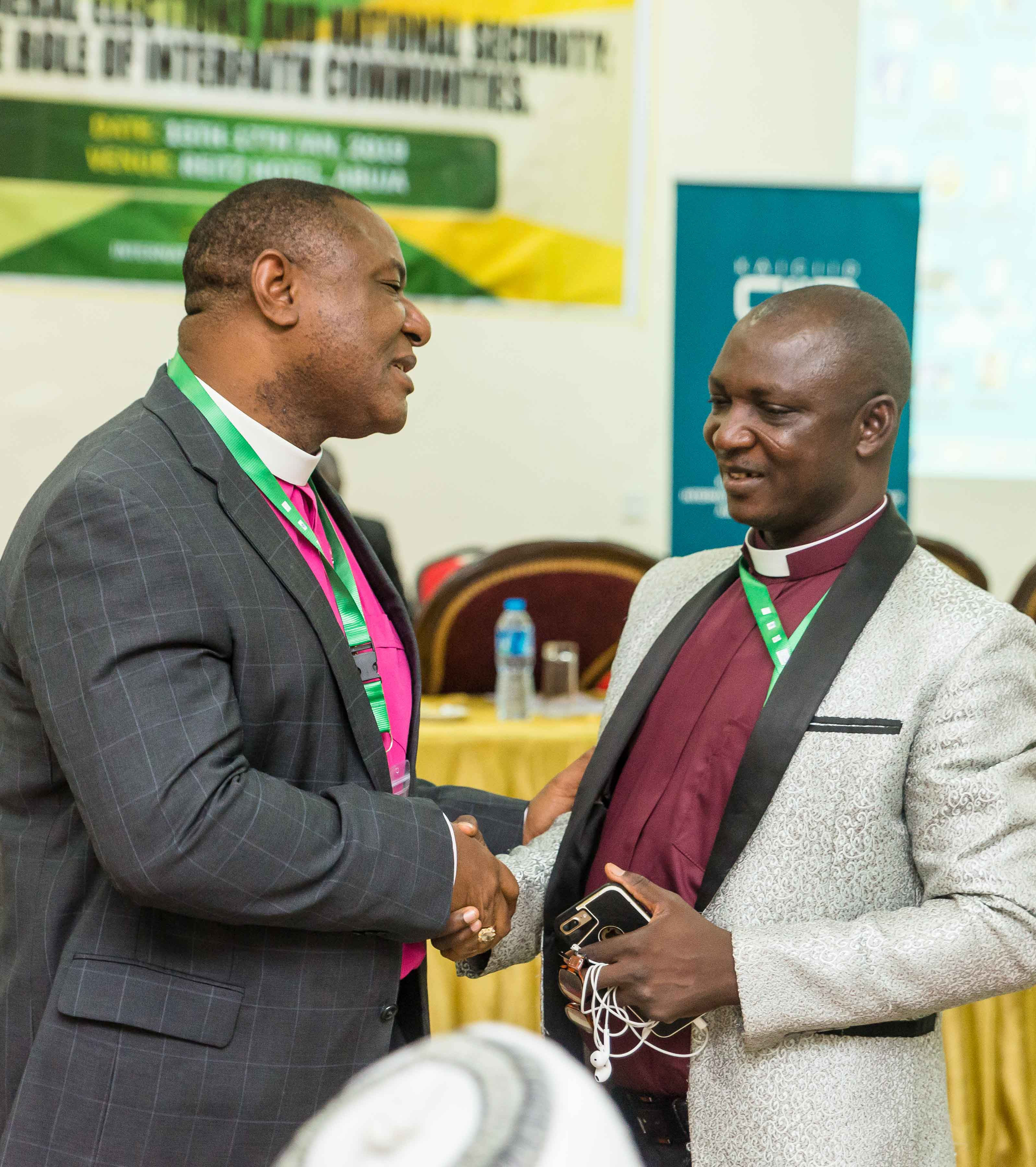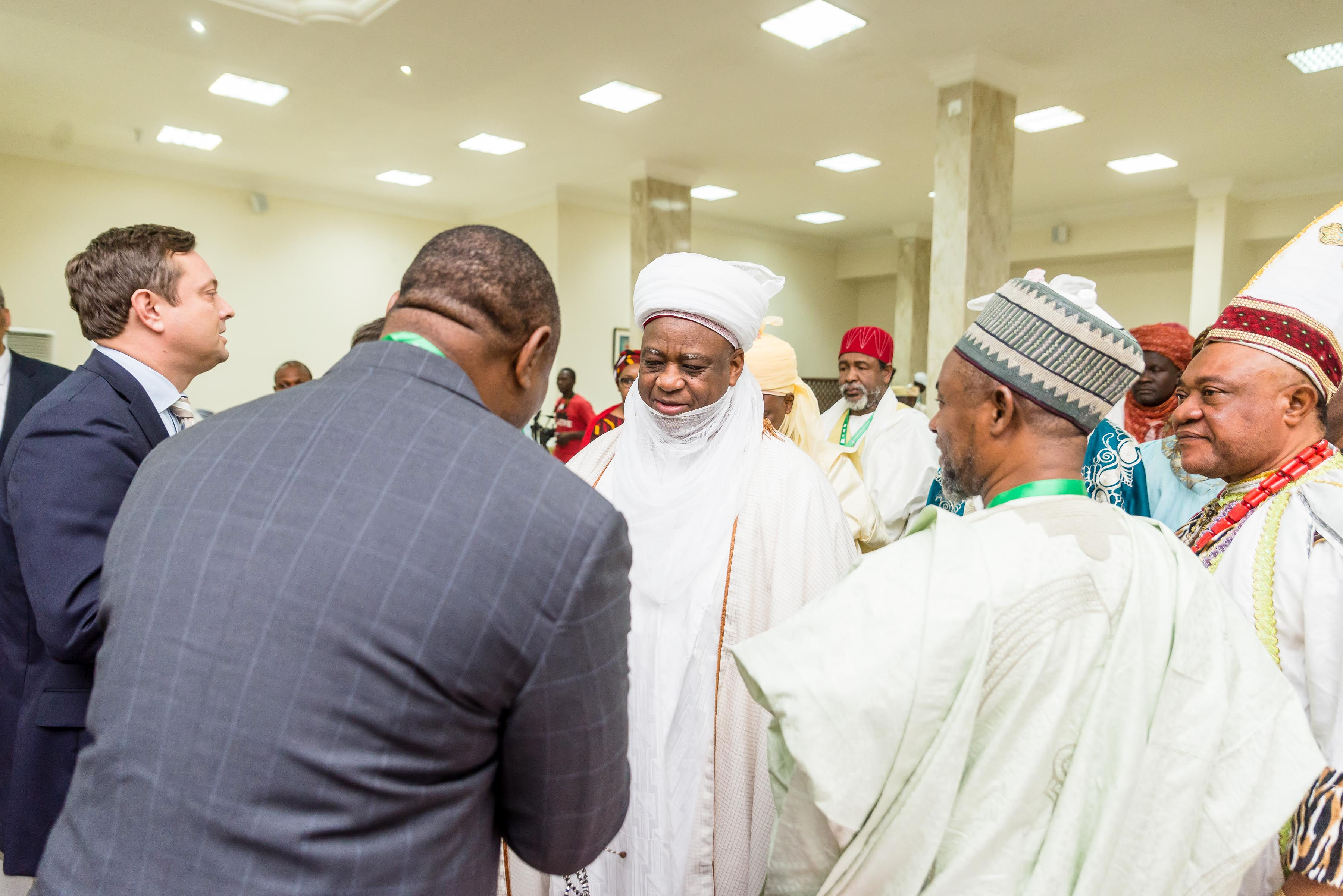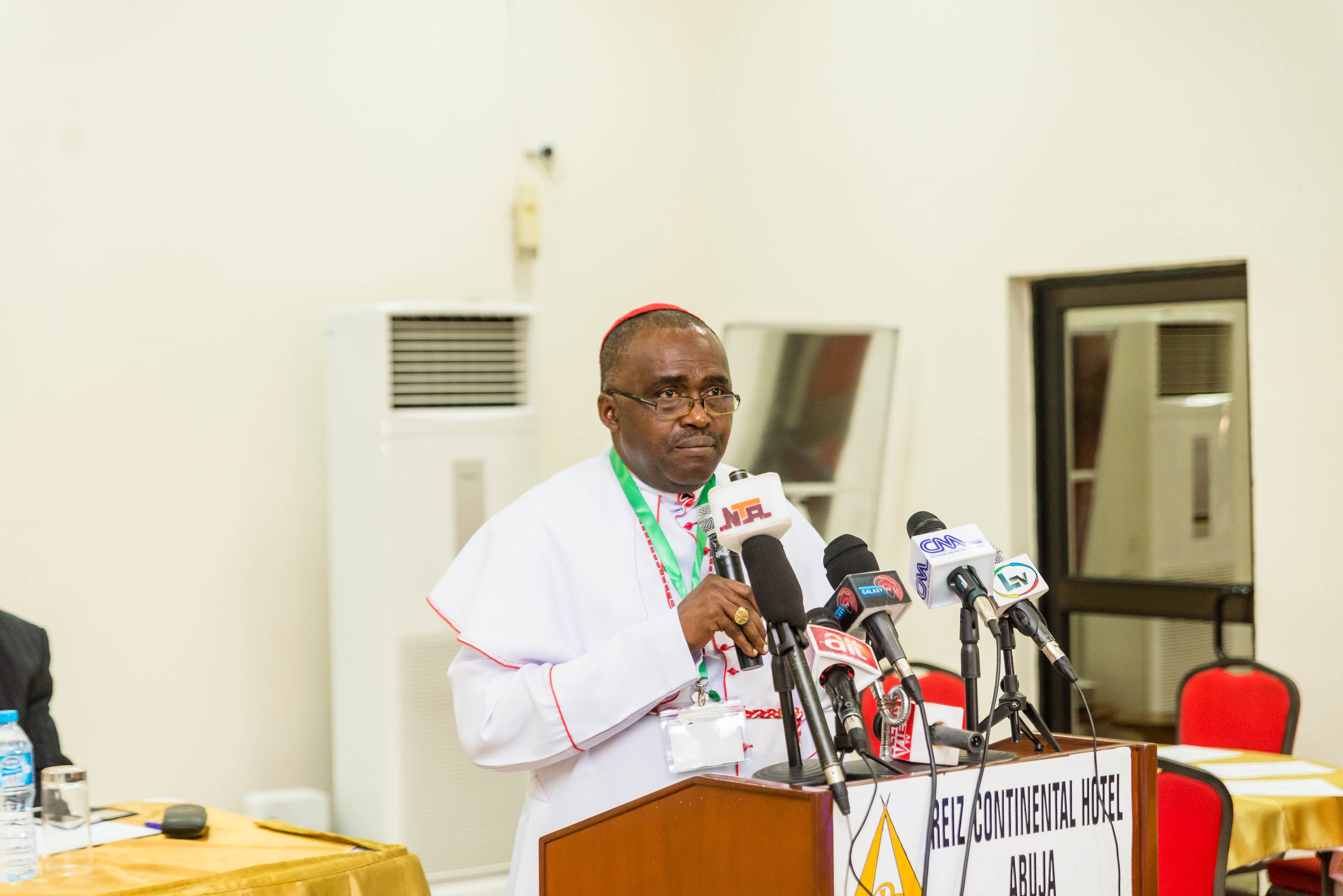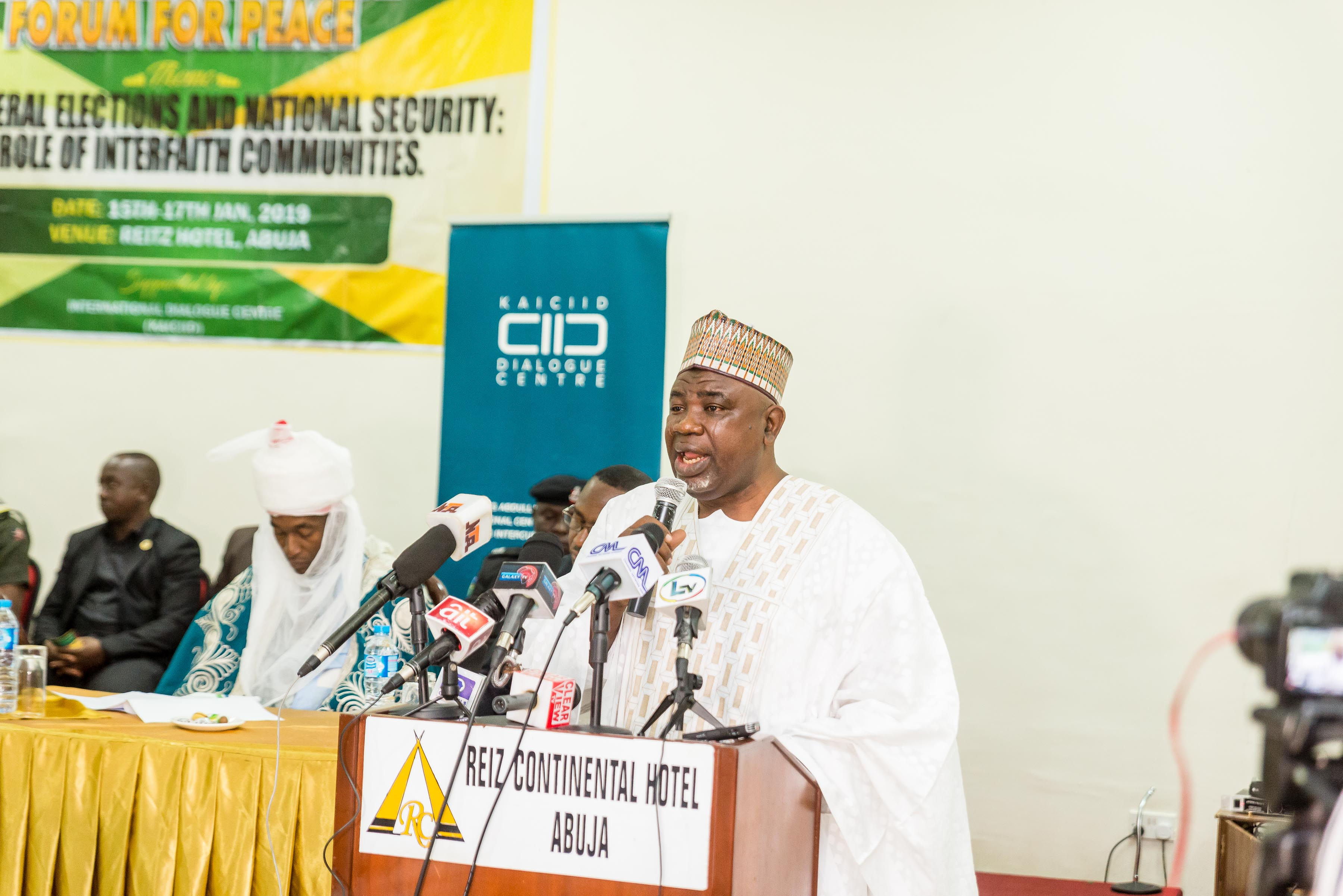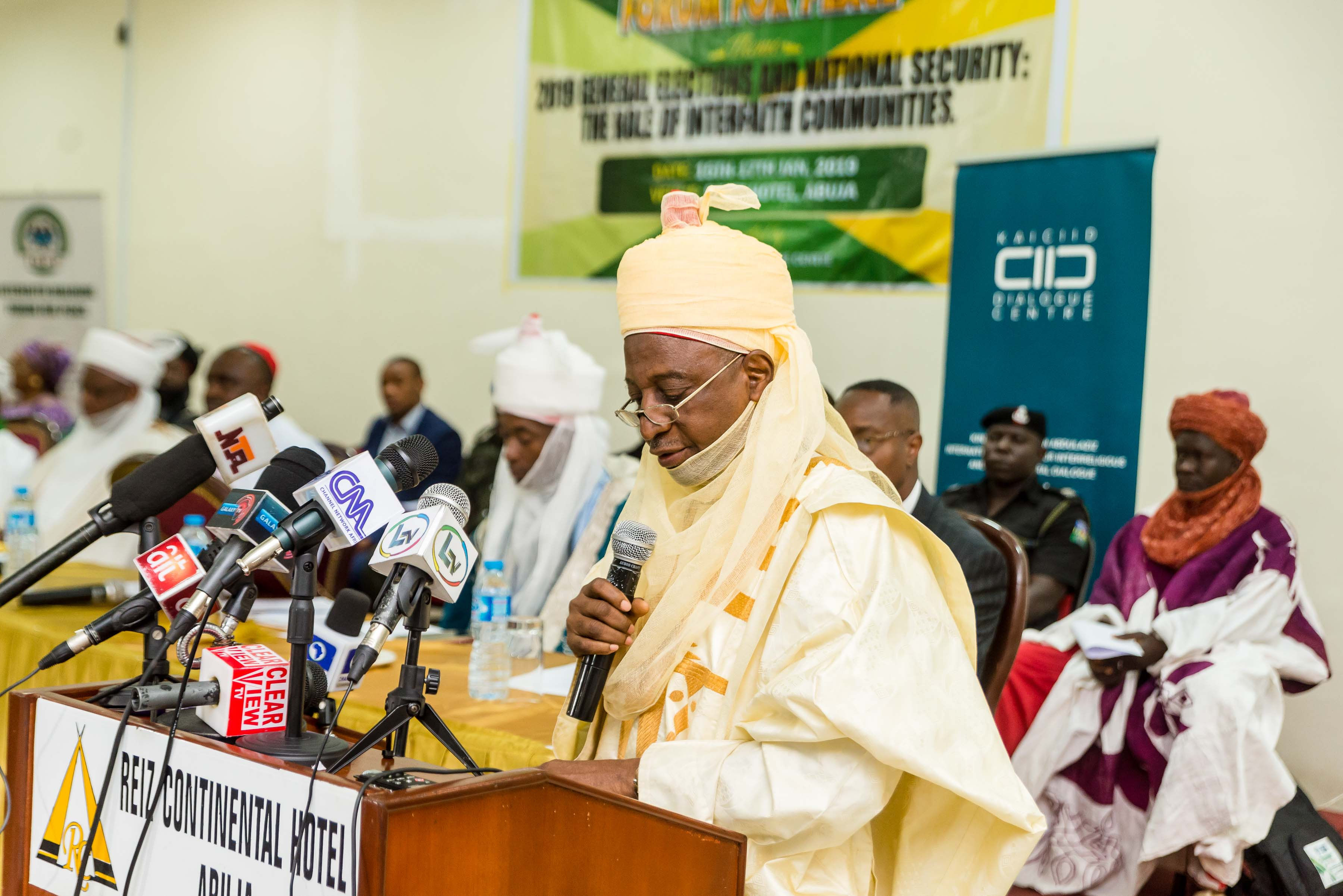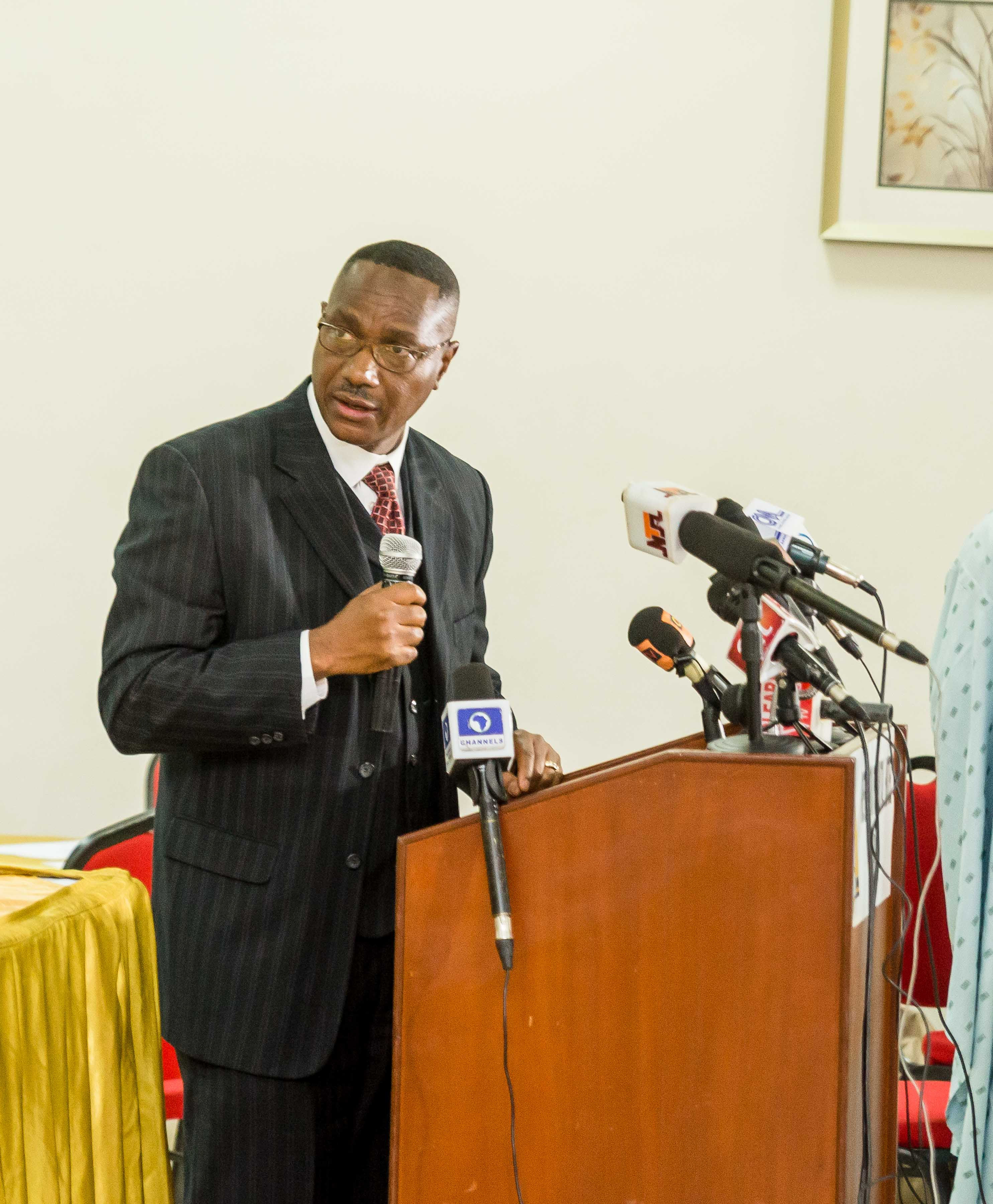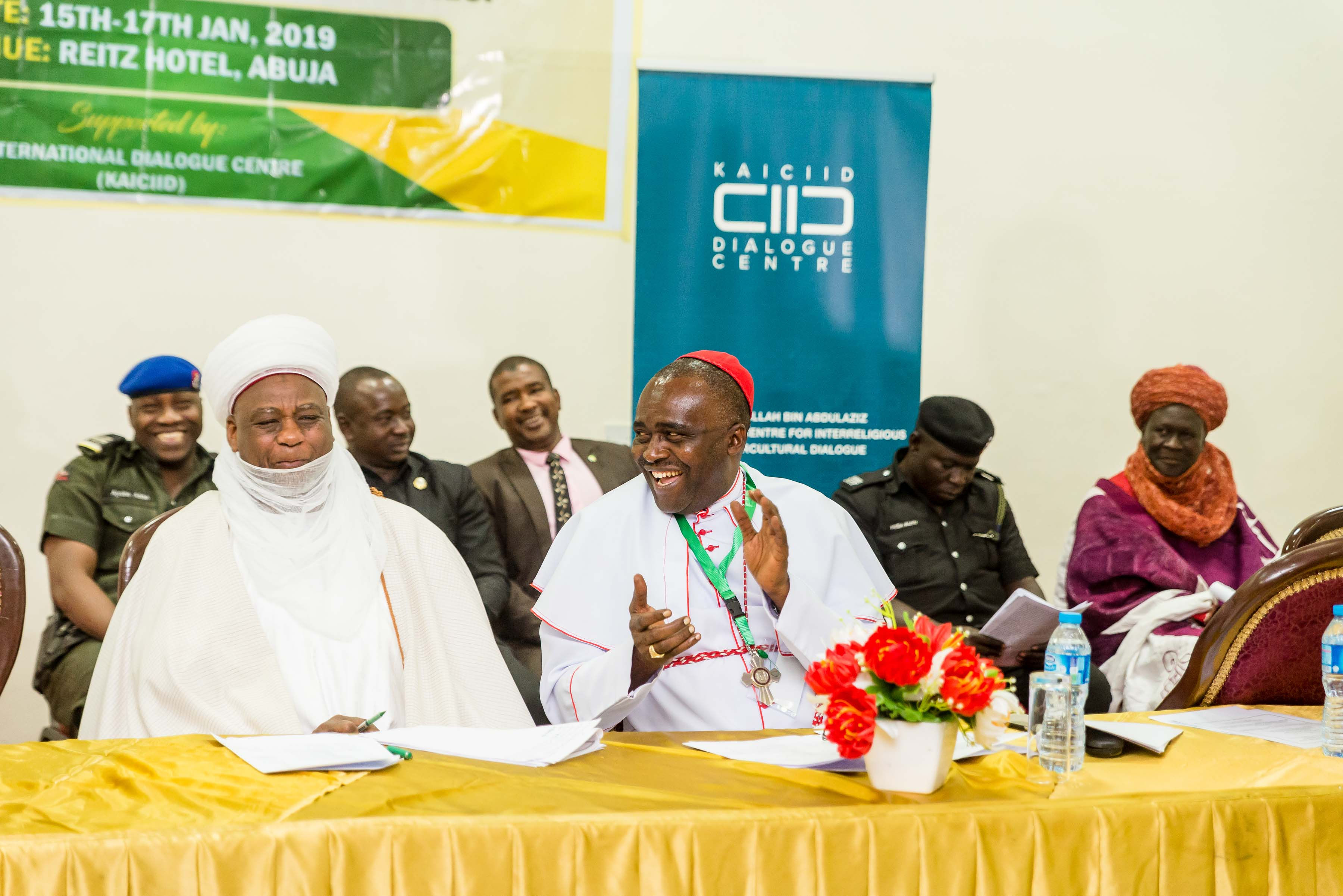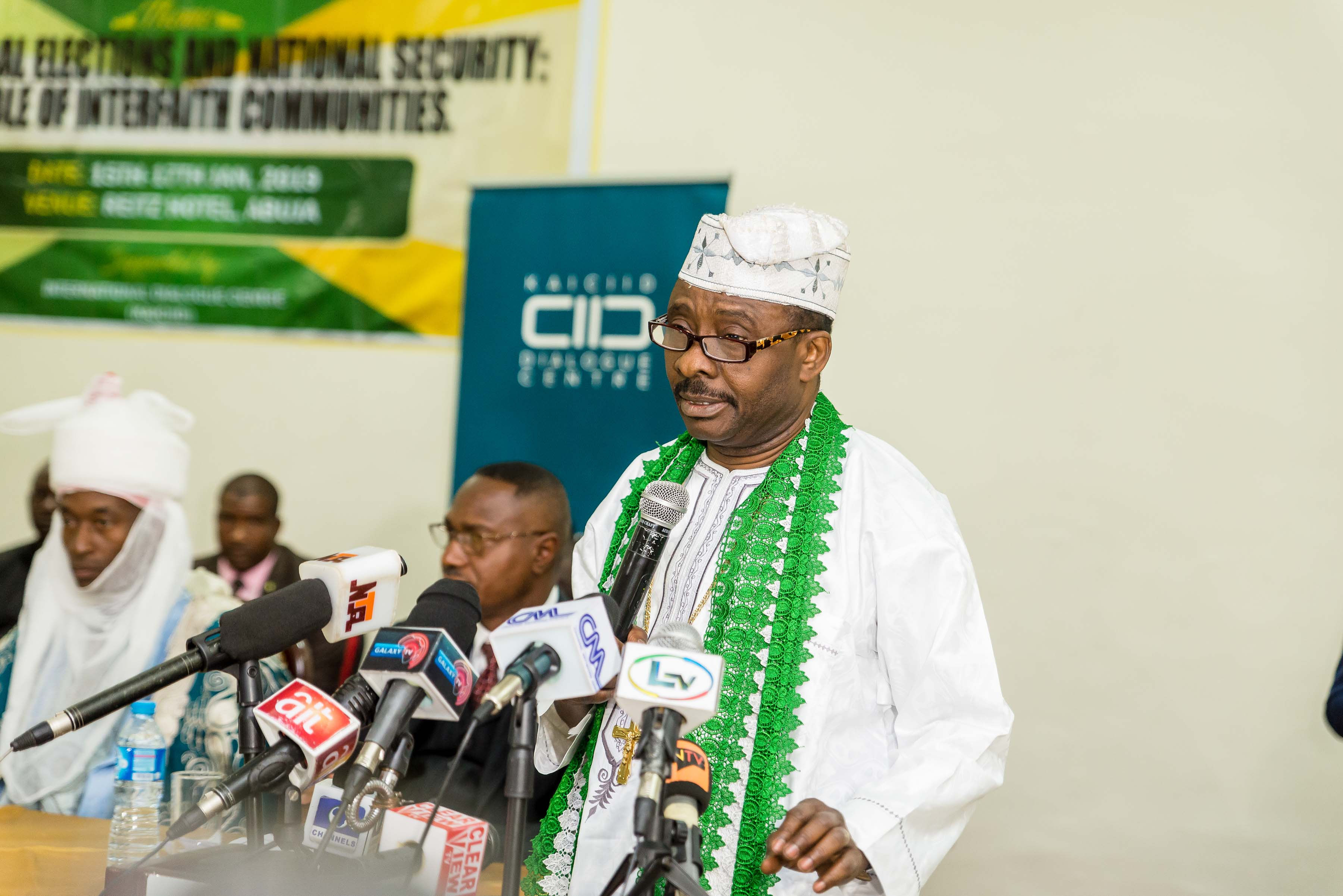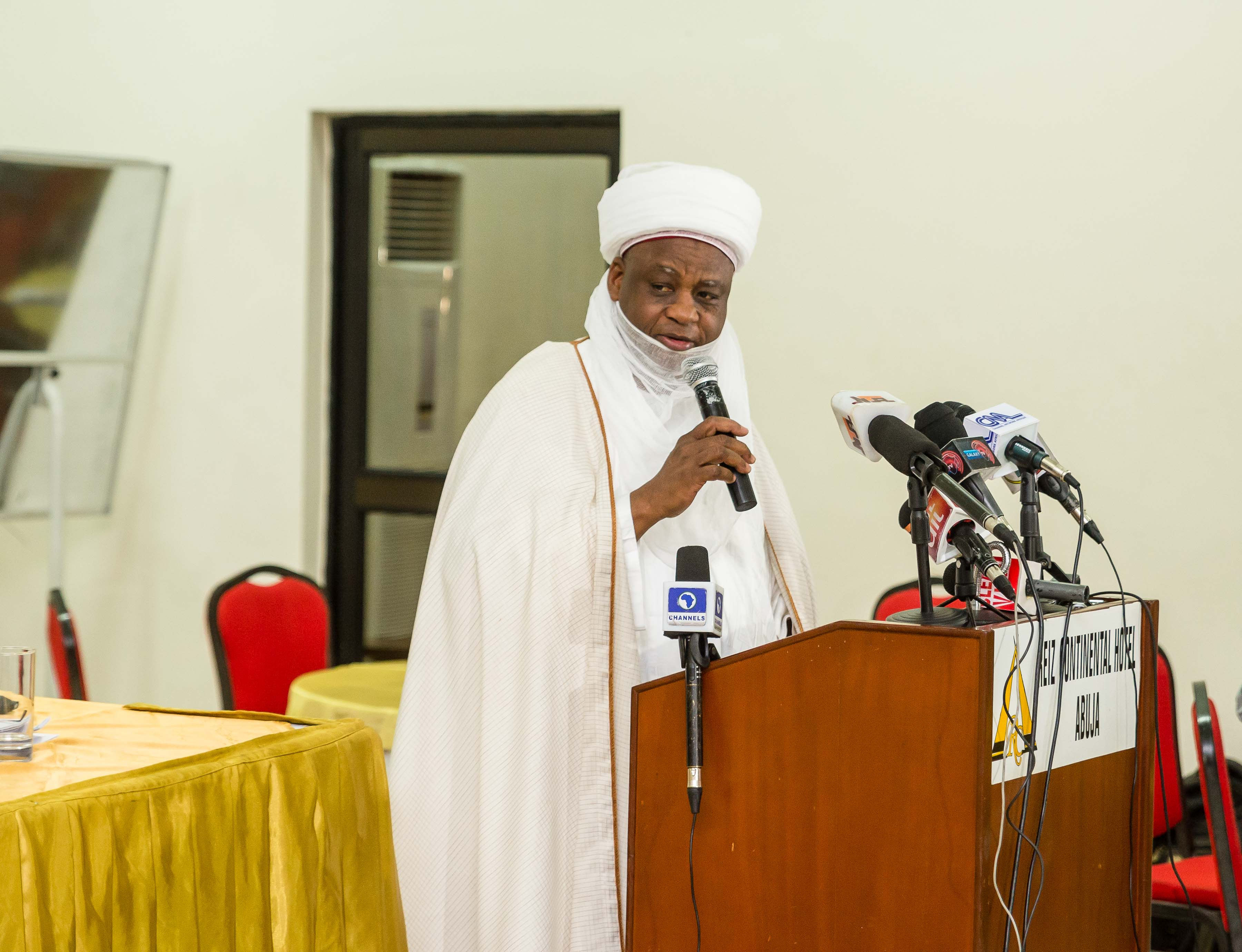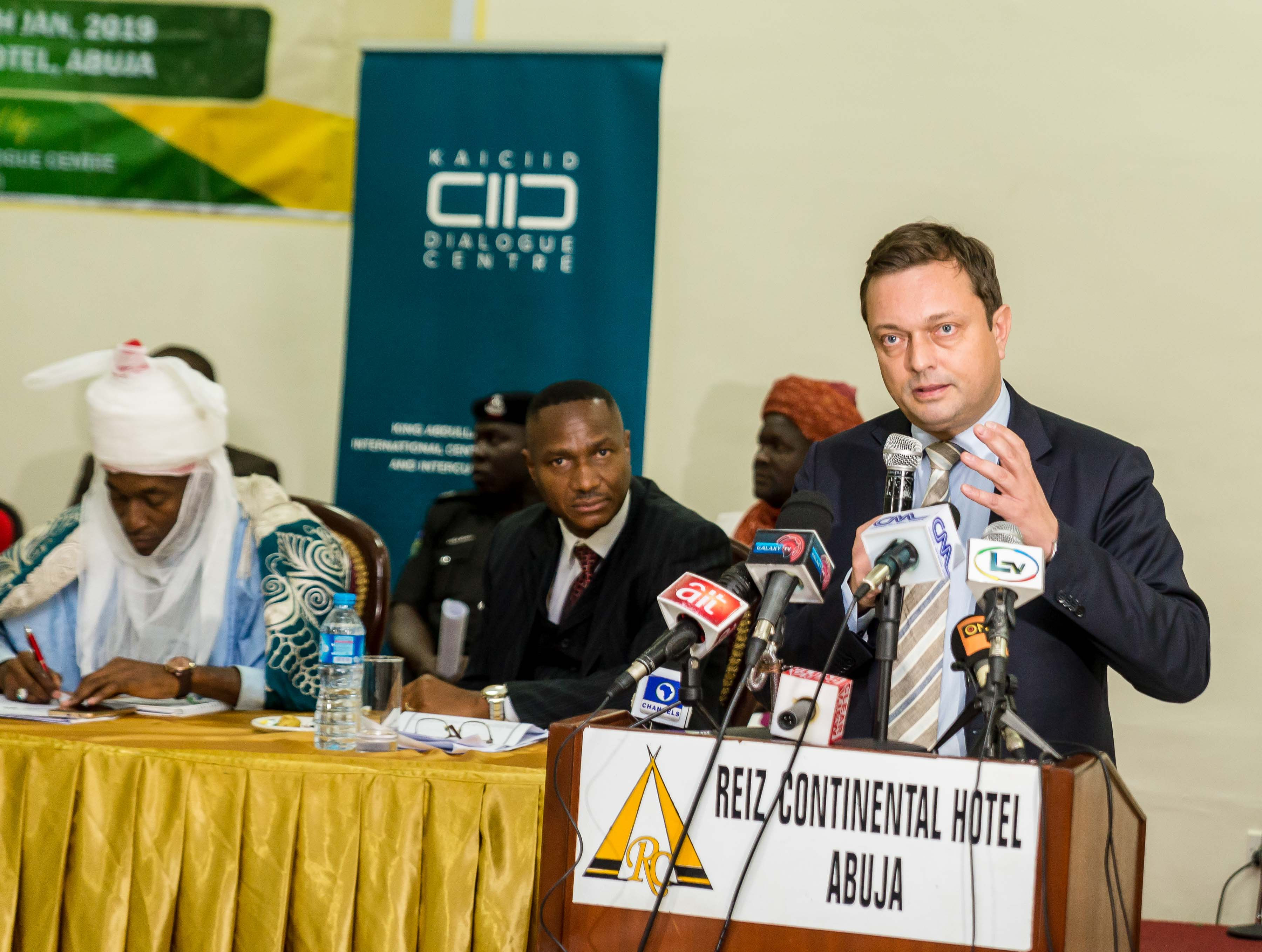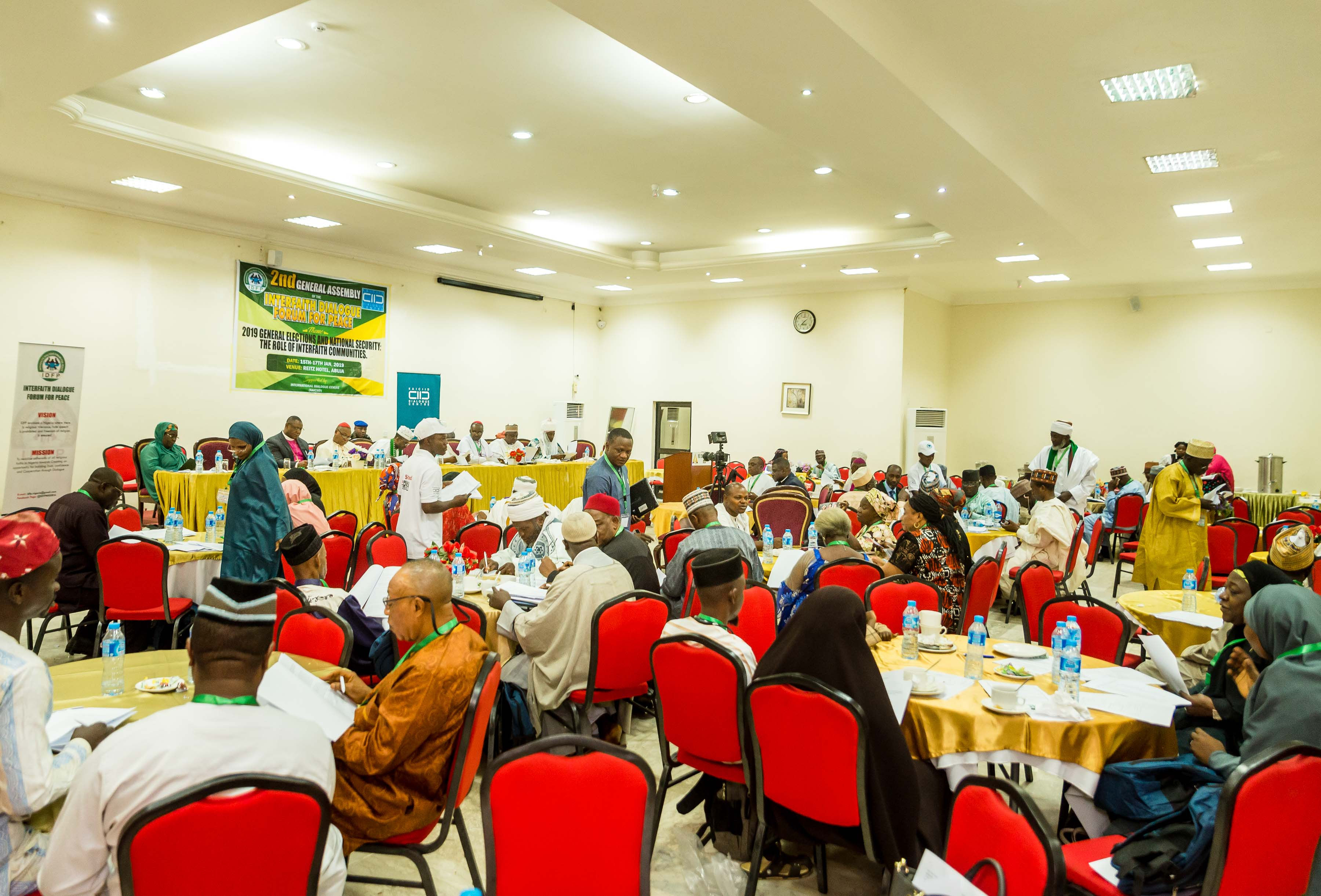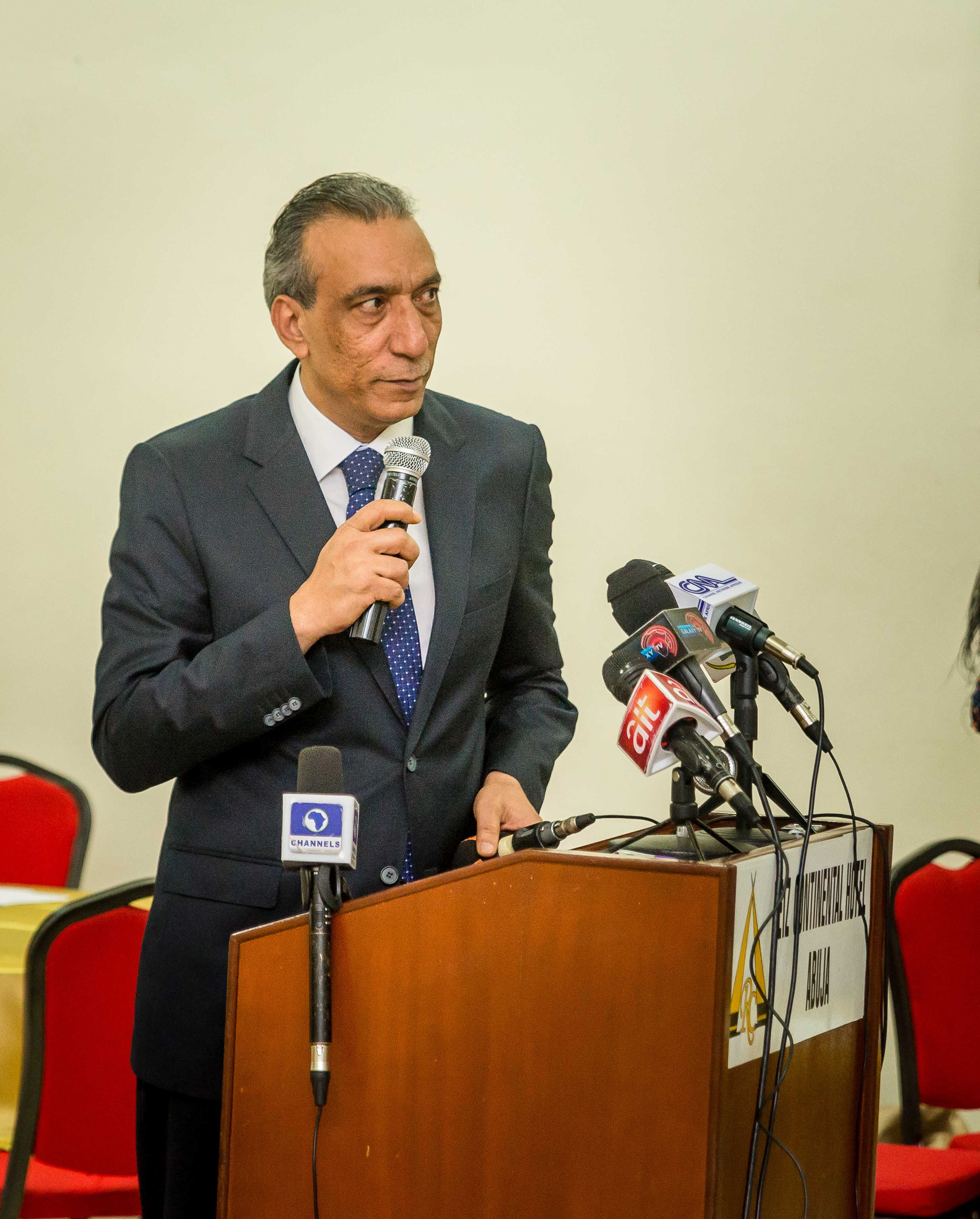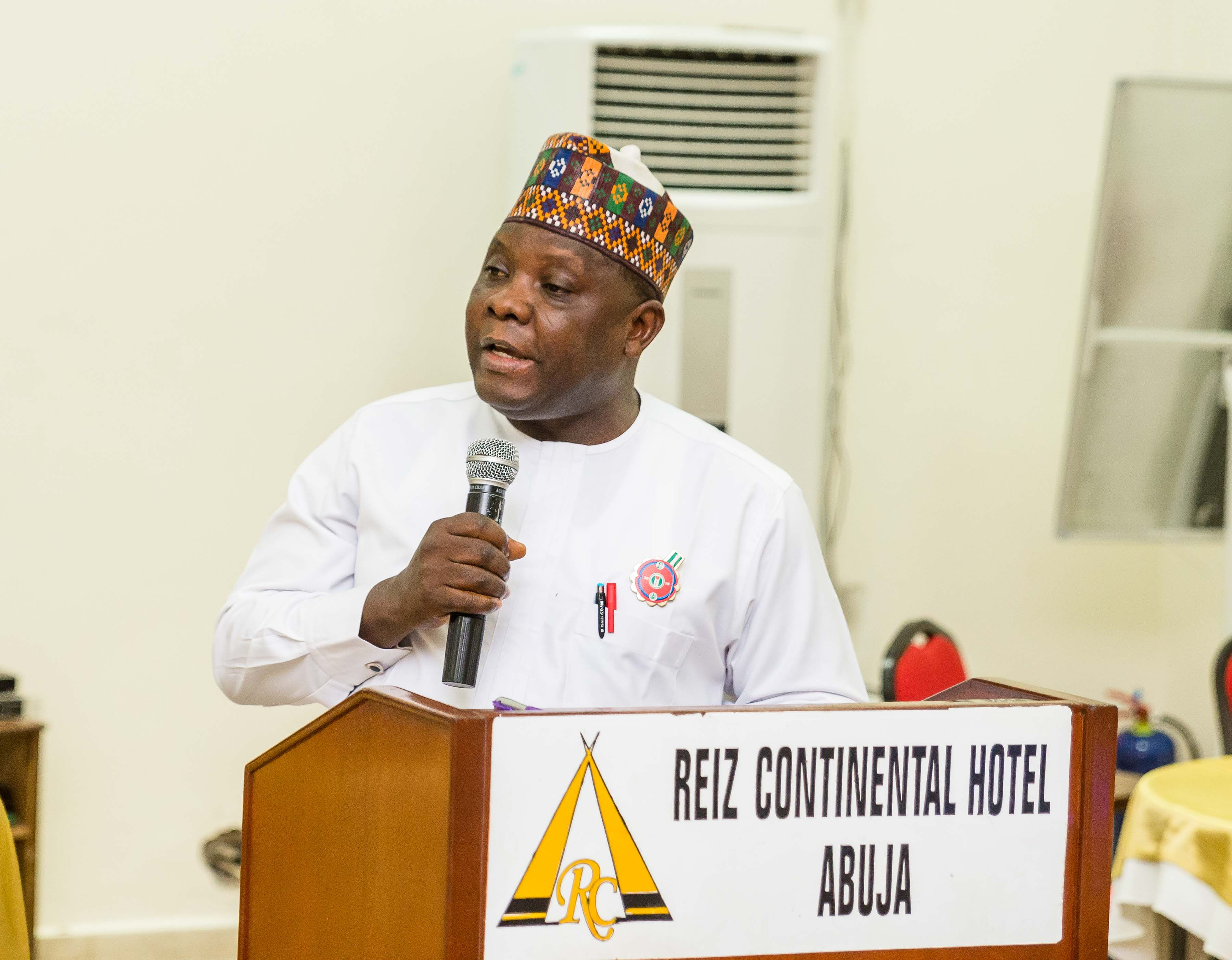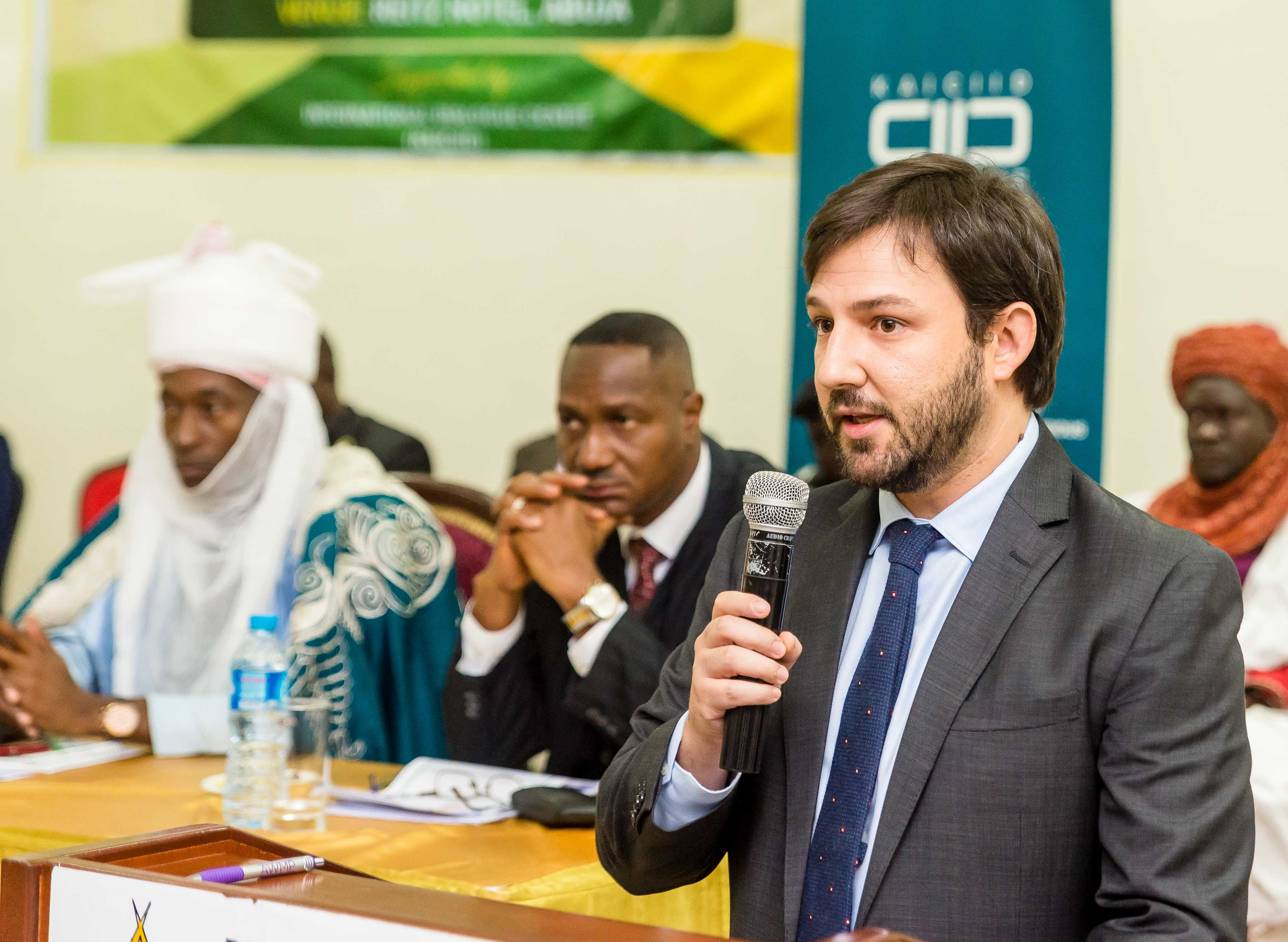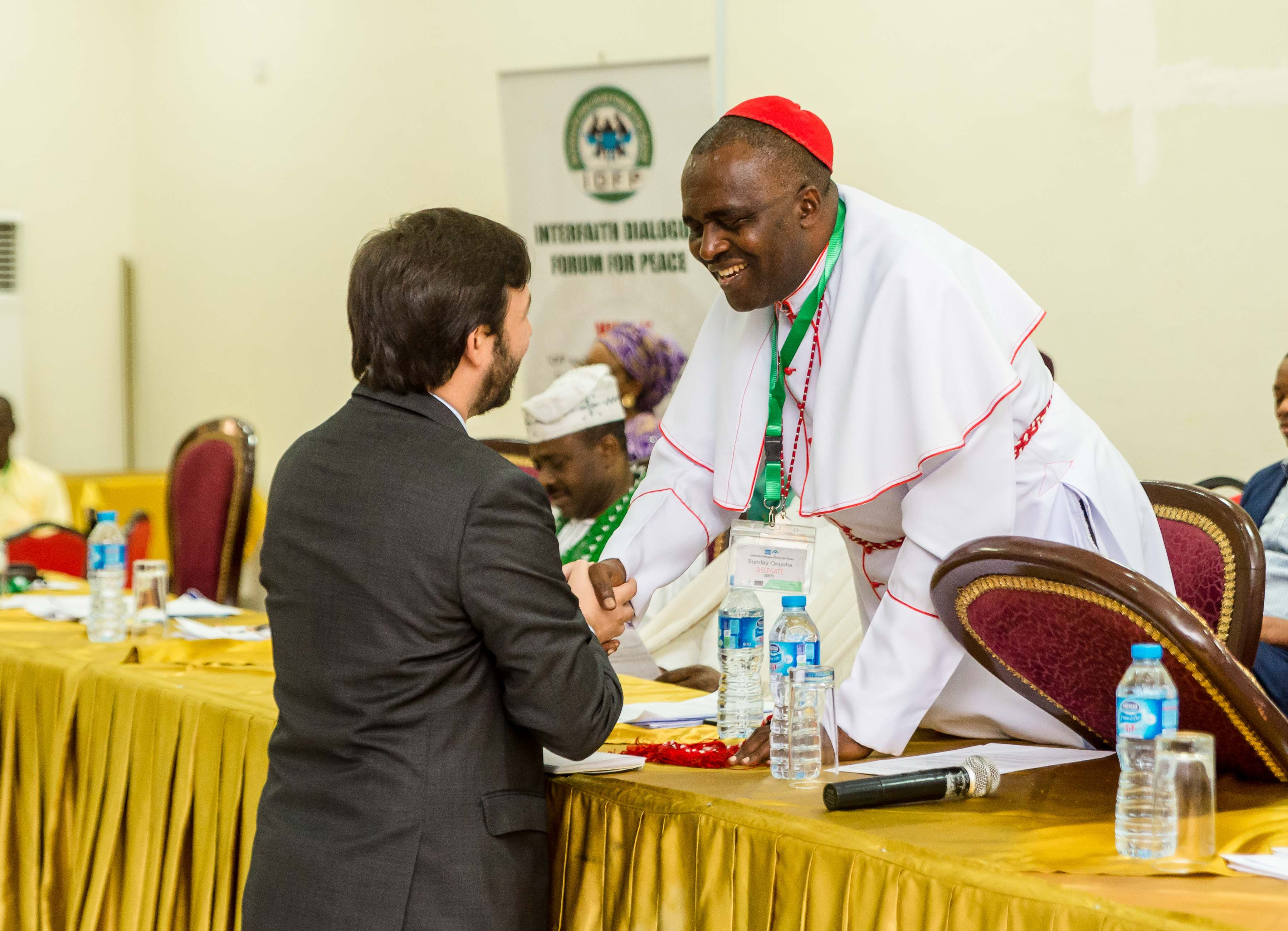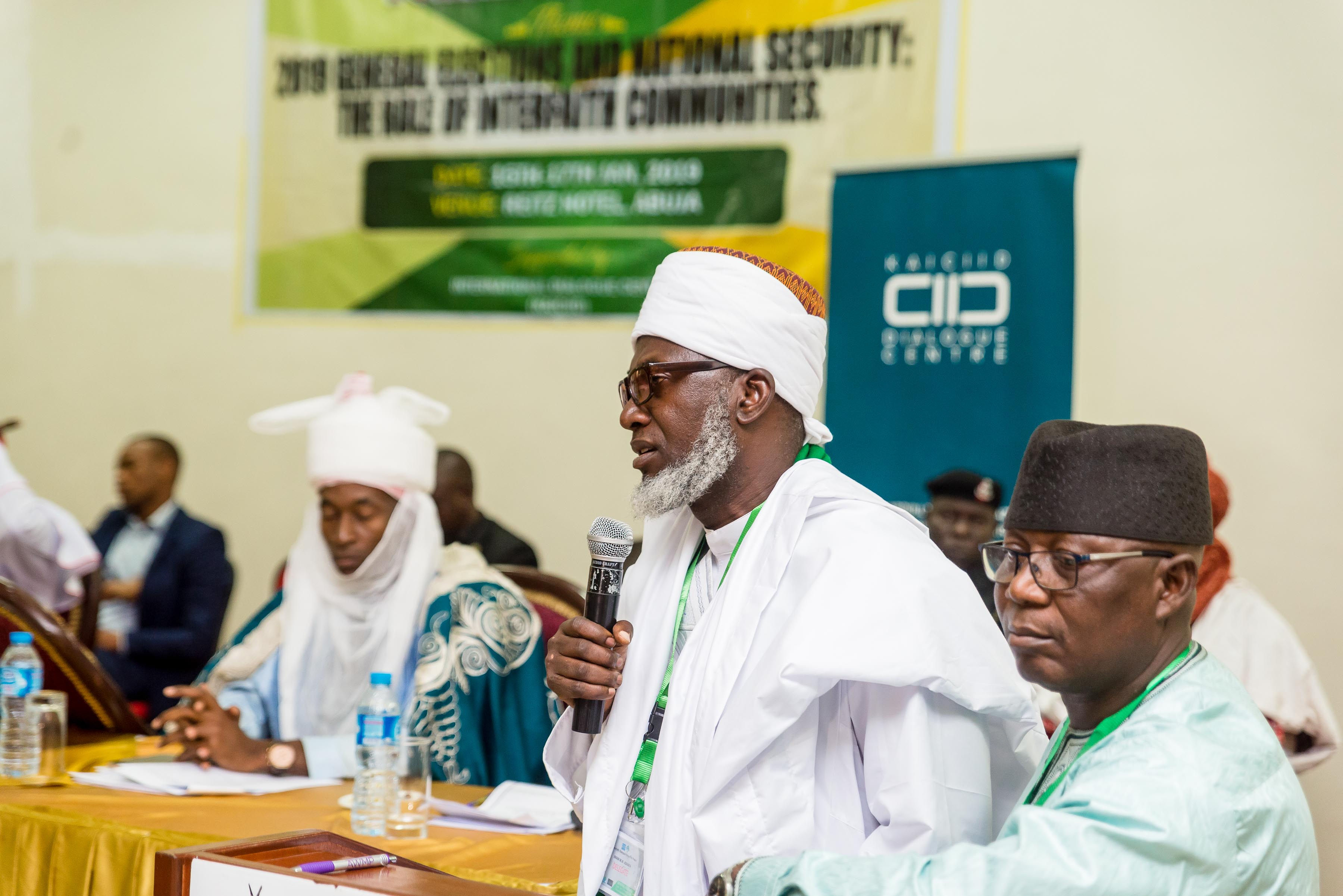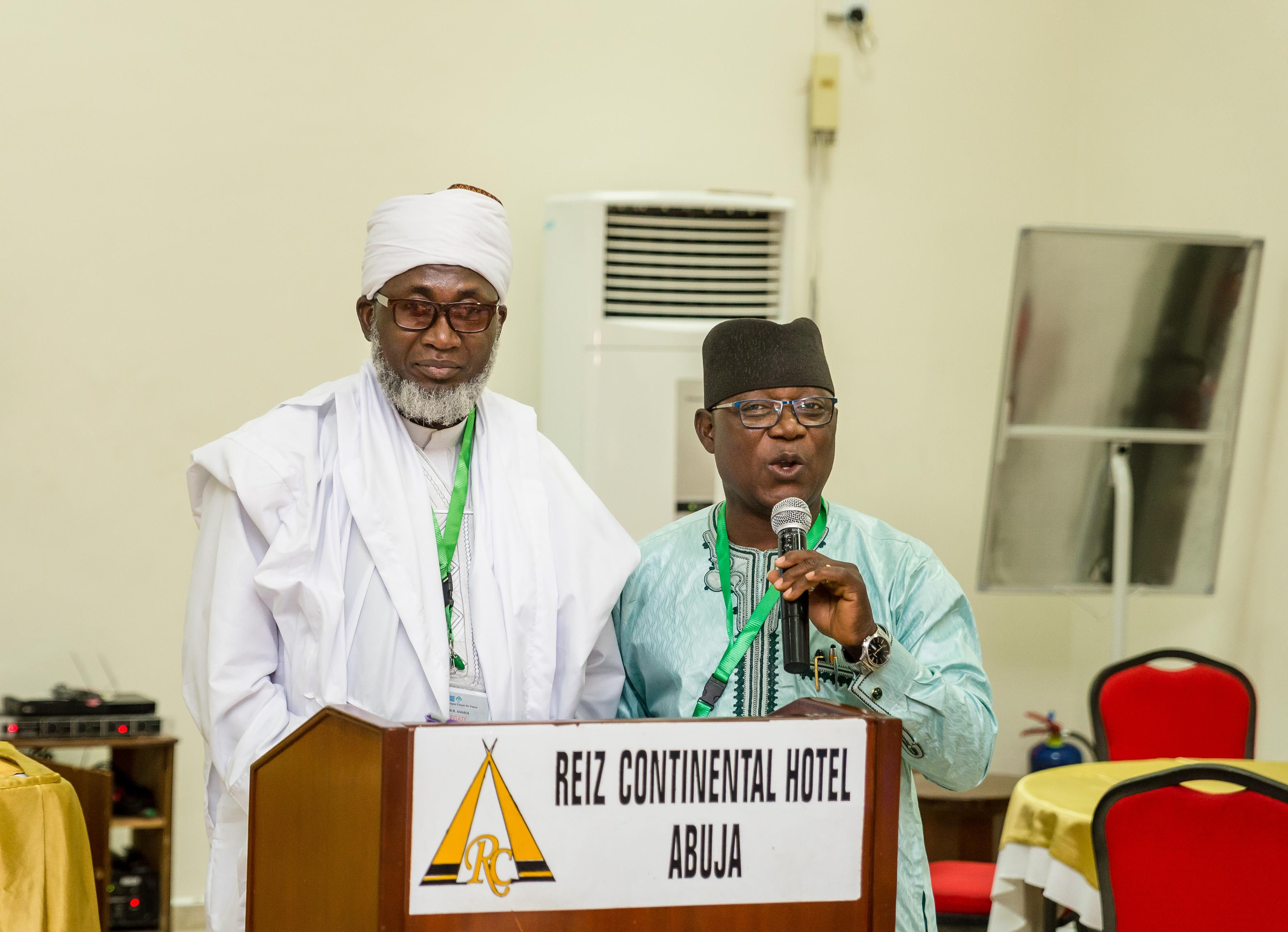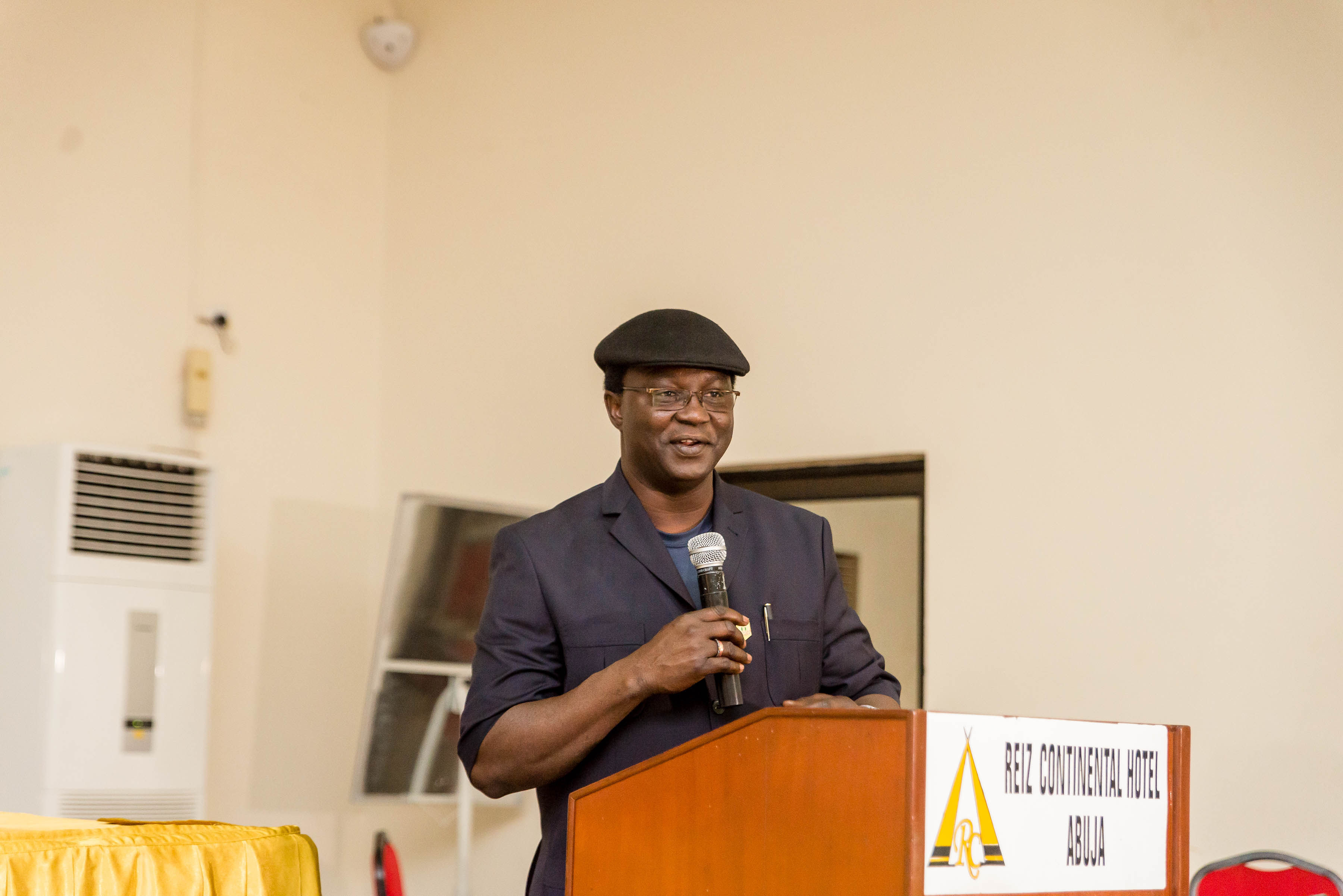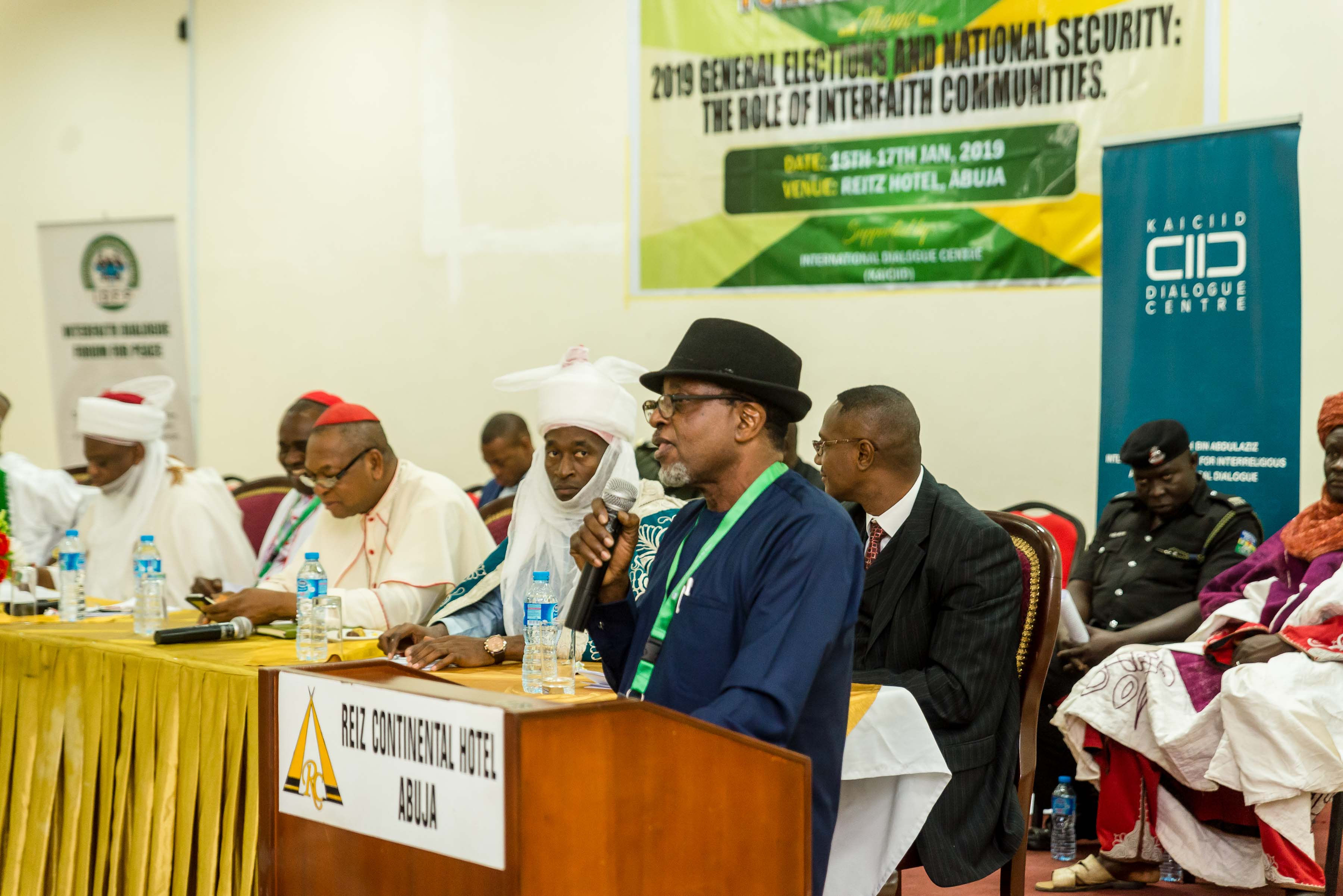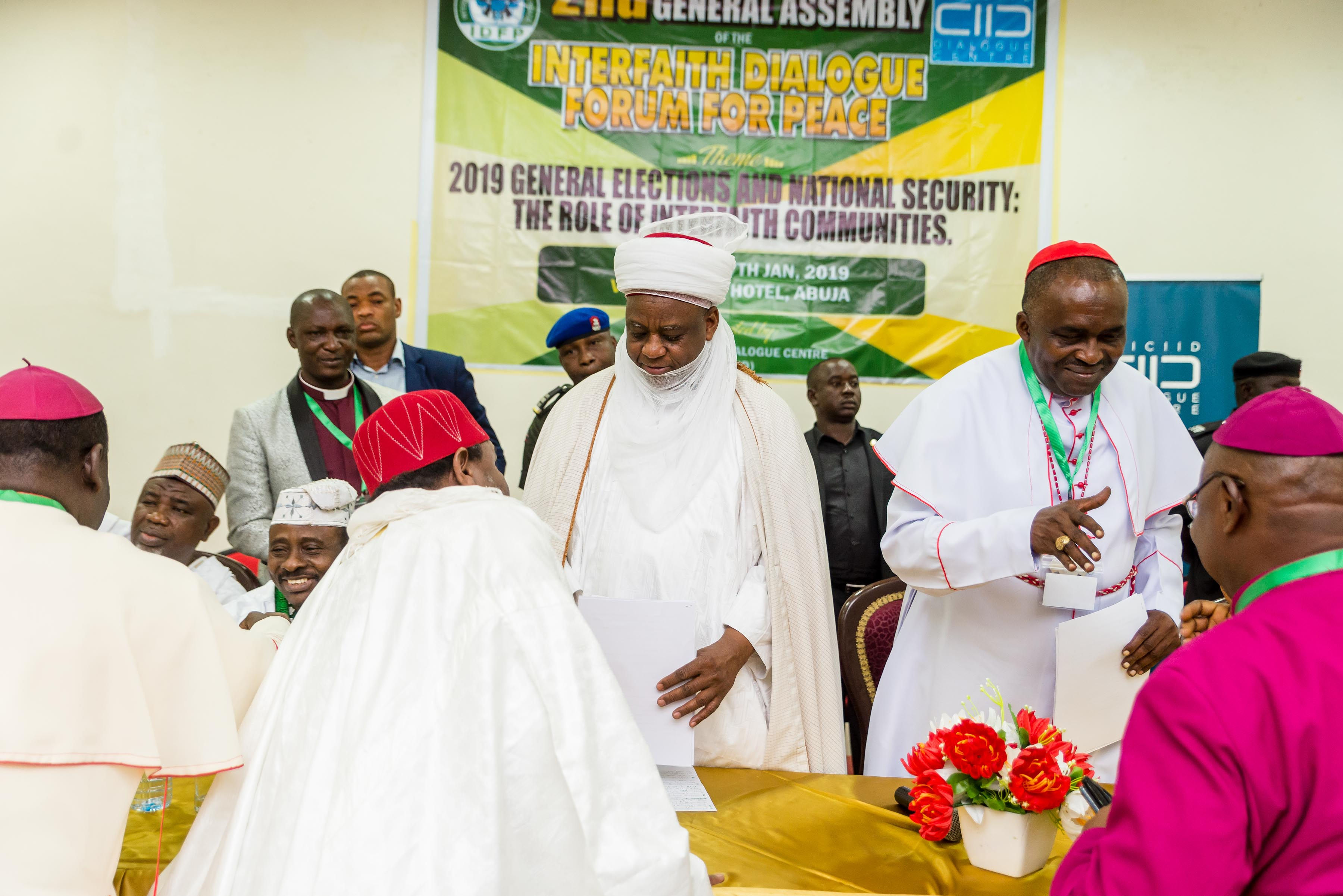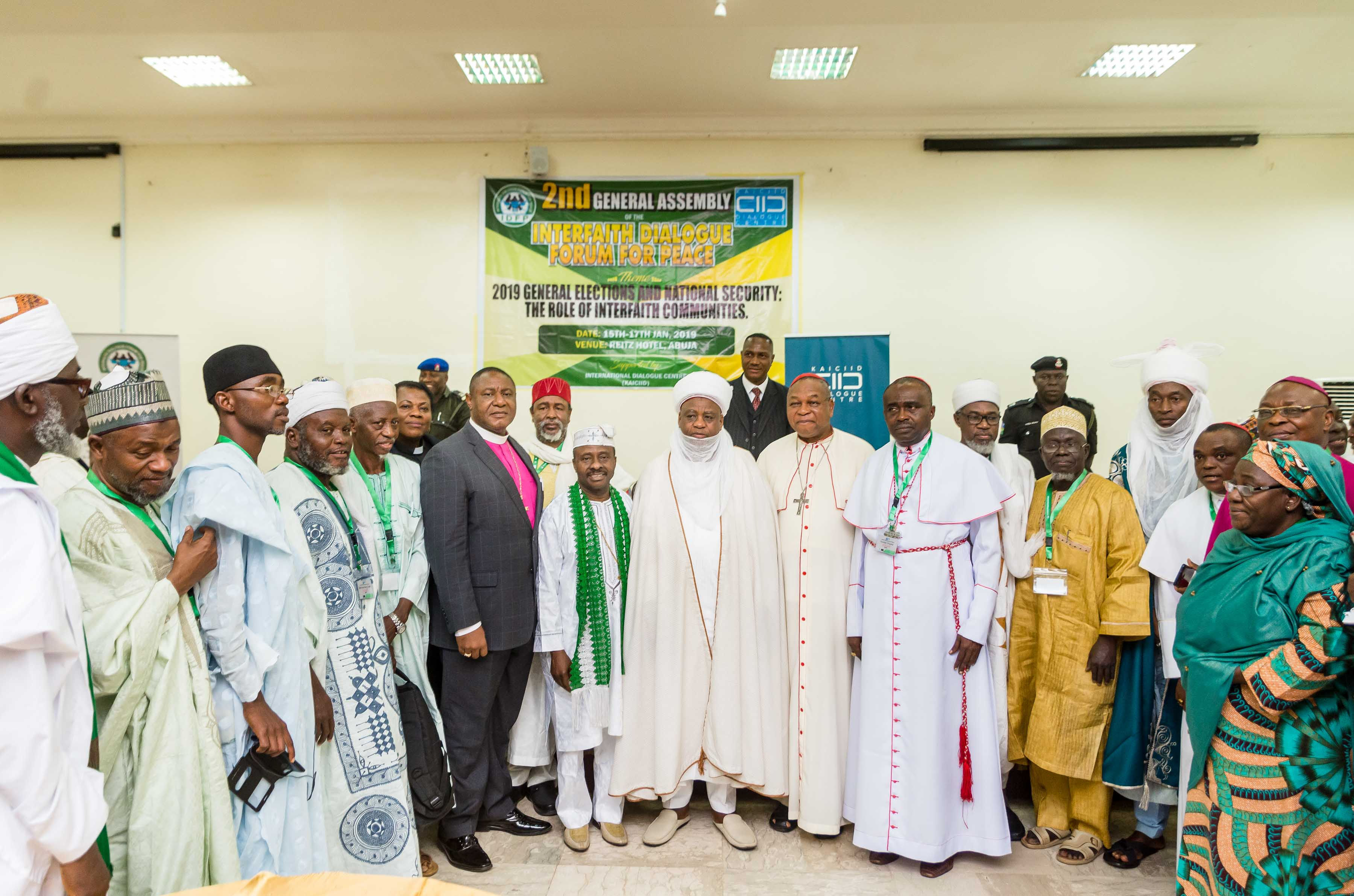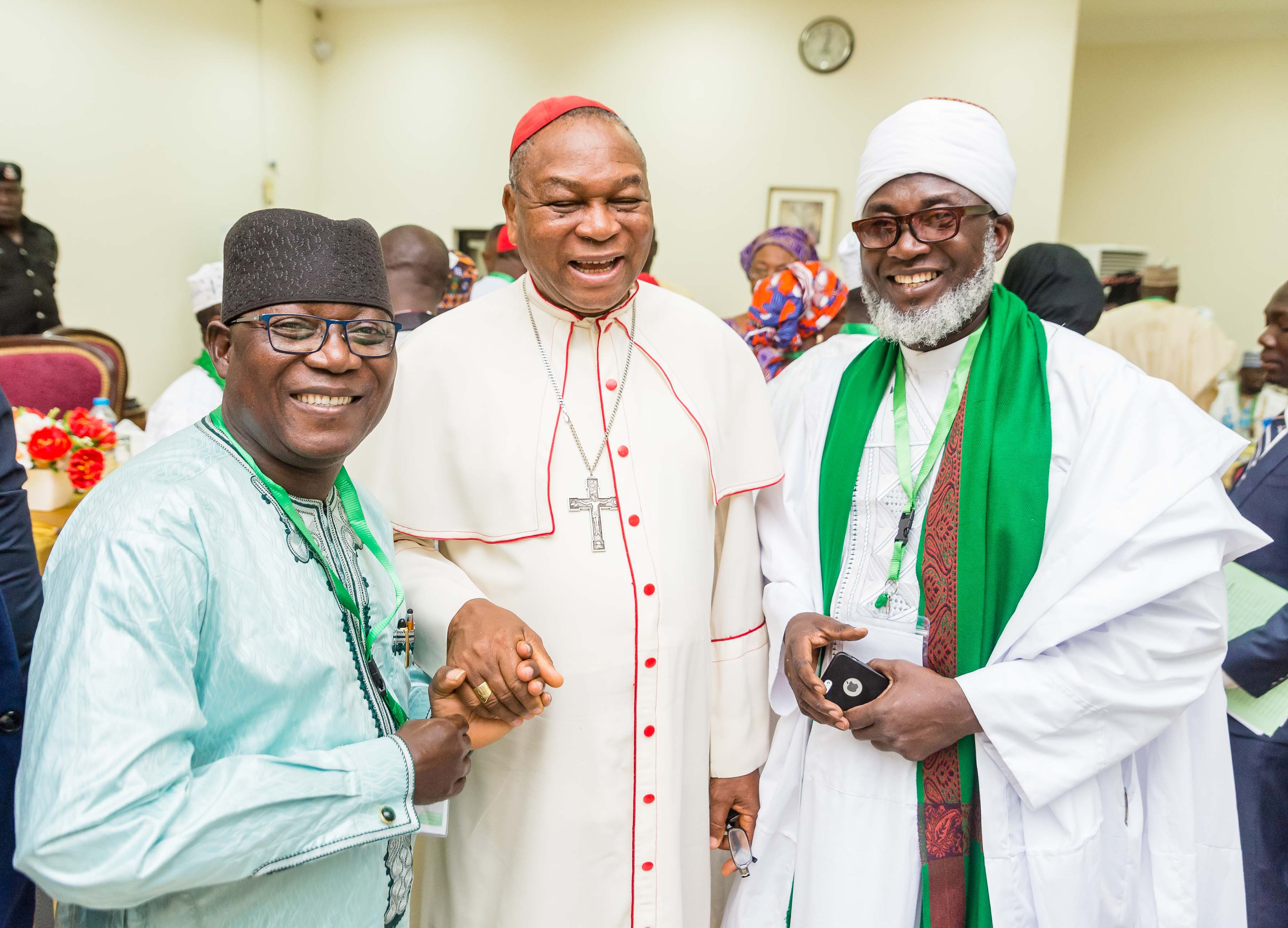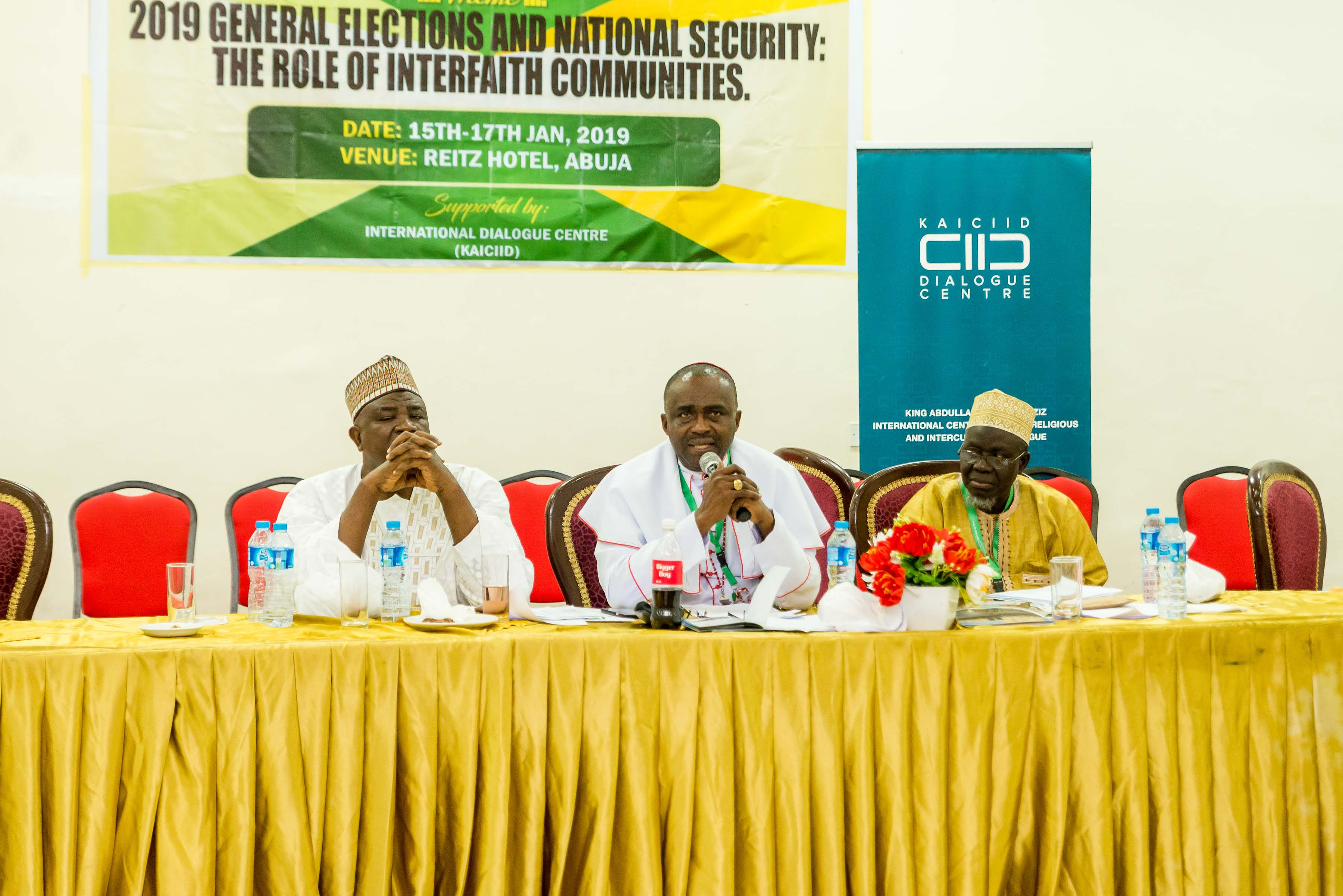Frieden und Versöhnung durch interreligiösen Dialog in Nigeria
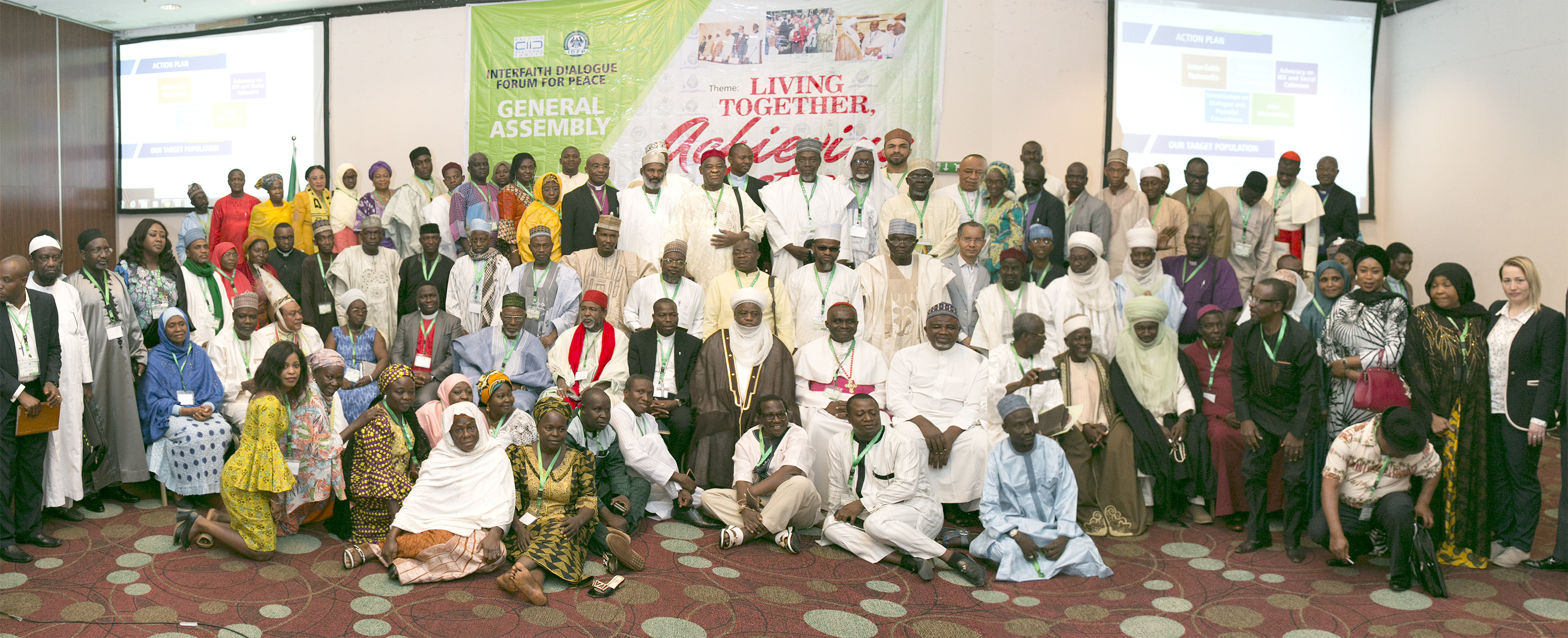
Projekt in Partnerschaft mit dem Kukah-Zentrum, dem Interreligiösen Mediationszentrum und dem Institut für Frieden und Konfliktlösung (IPCR)
Nigeria zählt über 182 Millionen Menschen und mehr als 500 ethnische Gruppen (laut der Volkszählung des Jahres 2015). Somit ist das Land fast gleichmäßig in Islam und Christentum geteilt. Einem kürzlich erschienenen Bericht der Vereinten Nationen zufolge wird Nigeria die Vereinigten Staaten bis 2050 voraussichtlich als drittbevölkerungsreichstes Land der Welt überholen. Gegenwärtig verfügt es über die größte Wirtschaft in Afrika. Steigende Spannungen entlang religiöser, regionaler, ethnischer und politischer Bruchlinien haben die interreligiösen Beziehungen in Nigeria beeinträchtigt. Aufgrund des Mangels an nachhaltigem Dialog und eines Wettbewerbs um die verfügbaren Ressourcen gerät das Land immer stärker unter Druck. Vor allem im Nordosten Nigerias ist die Zunahme von Gewalt durch extremistische Gruppen wie Boko Haram zu beobachten, die versuchen, die religiöse Identität in Nigeria zu politischen Zwecken zu manipulieren. Diese Gewalttaten bedrohen den sozialen Zusammenhalt in dieser historisch vielfältigen und multireligiösen Gesellschaft.

In 2017, the Centre supported the launch of the Interfaith Dialogue Forum for Peace (IDFP). The IDFP was the result of consultations with over 80 stakeholders and local partners in order to promote more effective and sustainable collaboration. As a locally owned, and legally registered entity, IDFP works on the promotion of interreligious dialogue for peace in the country, bringing together religious and interreligious actors, with international, governmental and civil society partners. The Forum has succeeded in adopting an interreligious action plan focusing on the establishment of Interfaith Networks and the support of social cohesion (1), interfaith education (2), the freedom of religion and the protection of holy sites (3), interfaith exchanges and media sensitisation (4), as well as countering hate speech (5).
In each of these areas, the Forum and its members have successfully implemented activities, including:
- Visits to communities in Kaduna State, Plateau State, Taraba State, Benue State, and Zamfara State affected by tensions between farming and pastoralists groups.
-
A high level intra-faith round table meeting on the de-radicalisation of extremist tendencies in Nigeria, resulting in a roadmap and a consensus working document for further implementation by the Muslim community.
-
A round table for Muslim and Christian students on the prevention of hate speech
-
A workshop for women which raised awareness on hate speech and incitement to vio lence, and equipped participants with tools to foster peace
-
Training for 120 Nigerian youth on the positive role of religion in peacebuilding within their communities

The Centre also supports local and grassroots initiatives which foster dialogue throughout the country. Through the grants scheme up to 20 grassroots organisations are supported each year, broadening our impact among the Nigerian population.
Read More: Project Snapshop – Kaduna Polytechnic Musllim-Christian Dialogue
The Nigeria programme partners with international and local organisations, such as the Centre’s collaboration with the Institute for Peace and Reconciliation (IPCR) on local case studies to assess interreligious dialogue activities in Nigeria as well as their impact on peace and reconciliation. The Centre is also jointly working with the Kukah Centre on the creation of Regional Peace Committees which operate as early warning systems and observation mechanisms. Our partnership with the Interfaith-Mediation Centre (IMC) works to promote Muslim-Christian dialogue and mediation.
KAICIID sees the considerable potential of functioning dialogue platforms which leaders from different religious traditions can use to address these and other emerging issues. These platforms can serve to combat growing intolerance and mistrust. The Centre has solidified its role as a dialogue facilitator in Nigeria and laid the foundations for sustainable interreligious dialogue through the establishment of dialogue spaces, capacity building, and support of local initiatives.
In order to foster collaboration, and provide resources and support for local initiatives, the Centre works through a three pillar approach.






